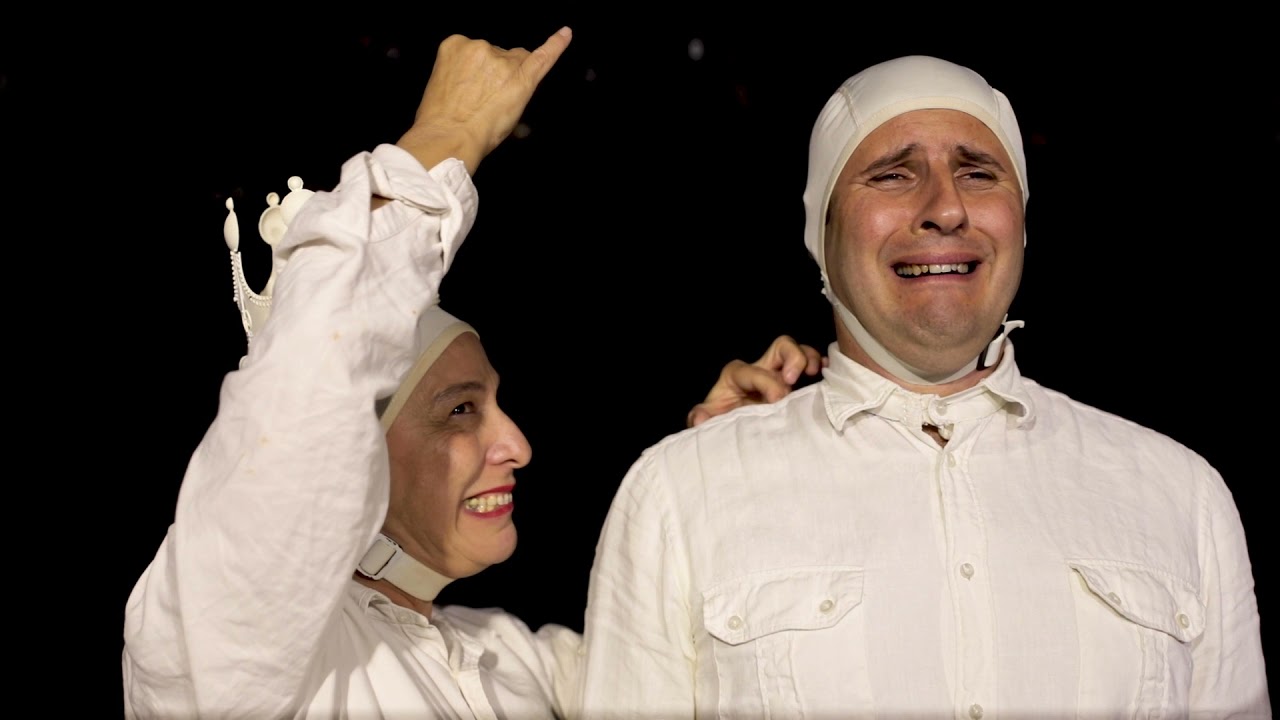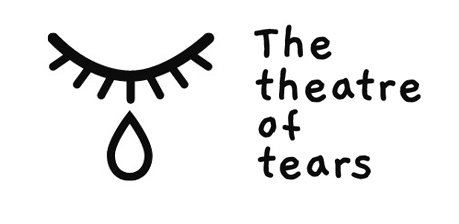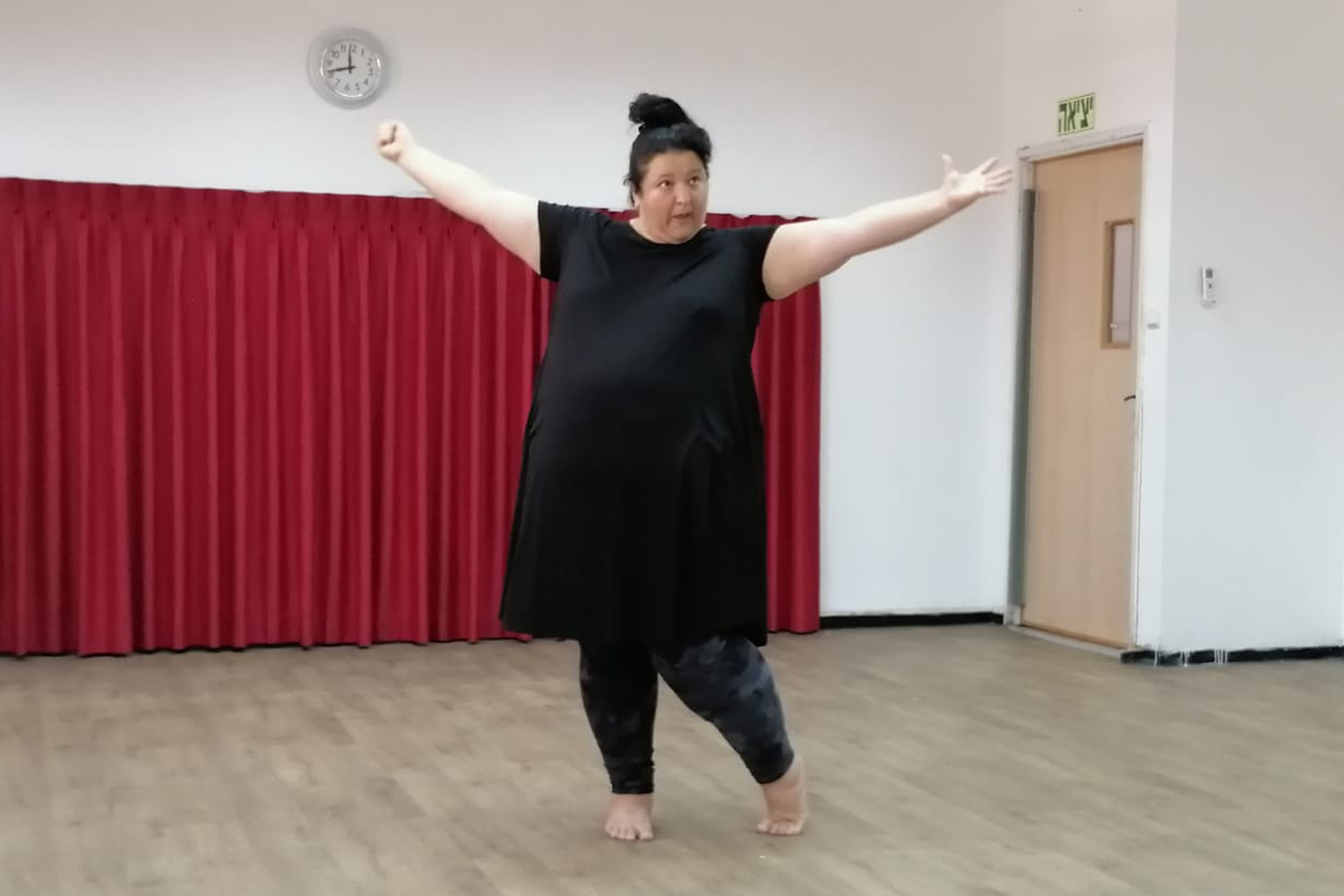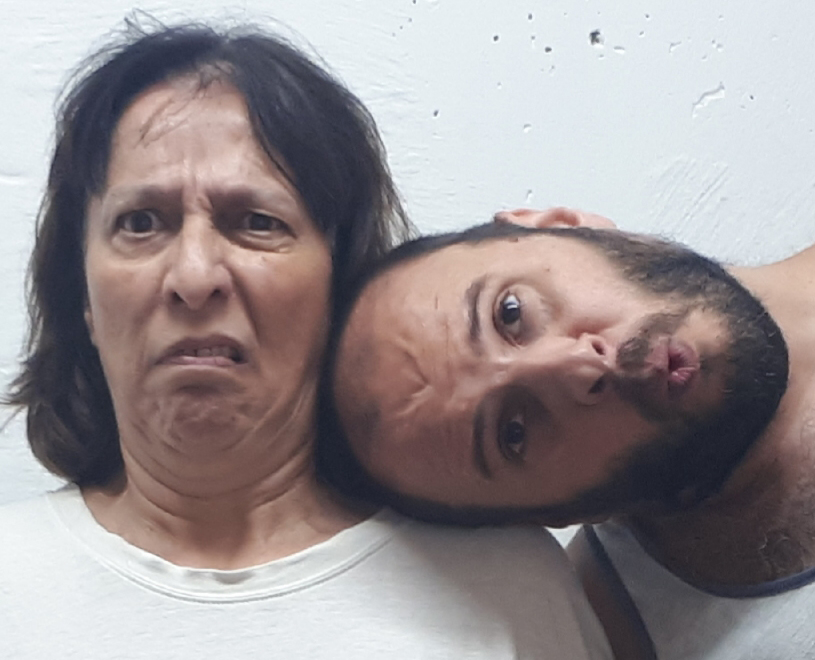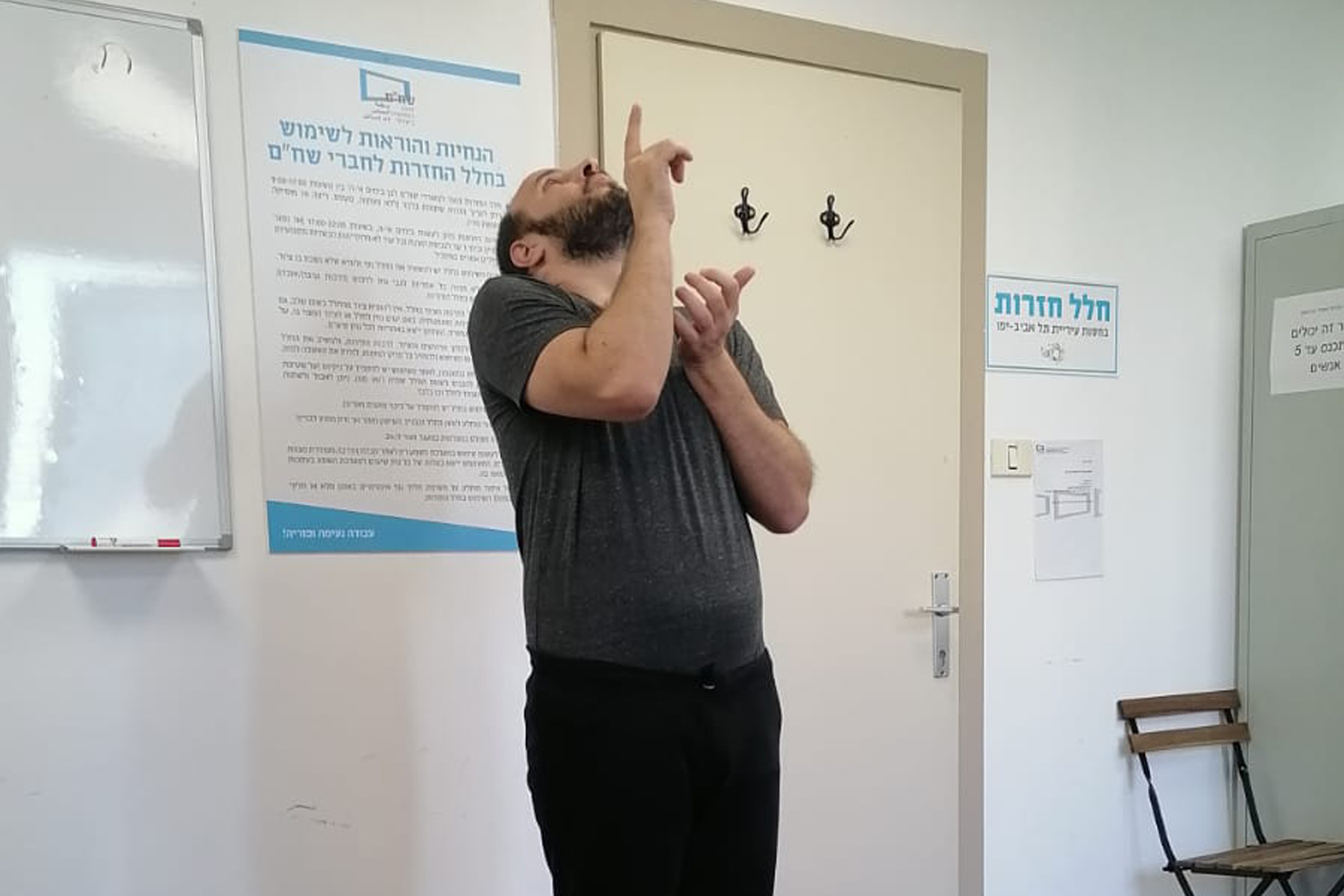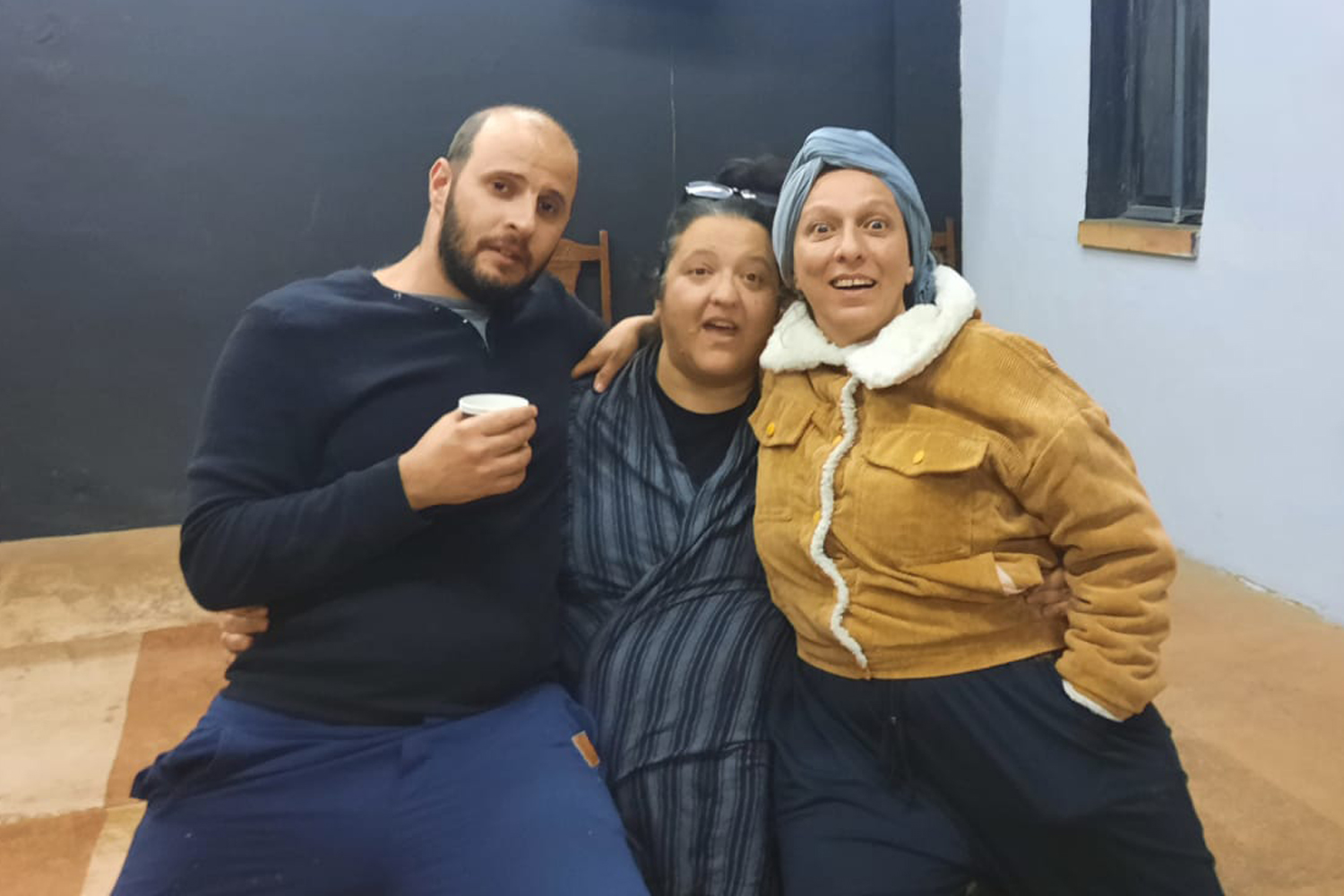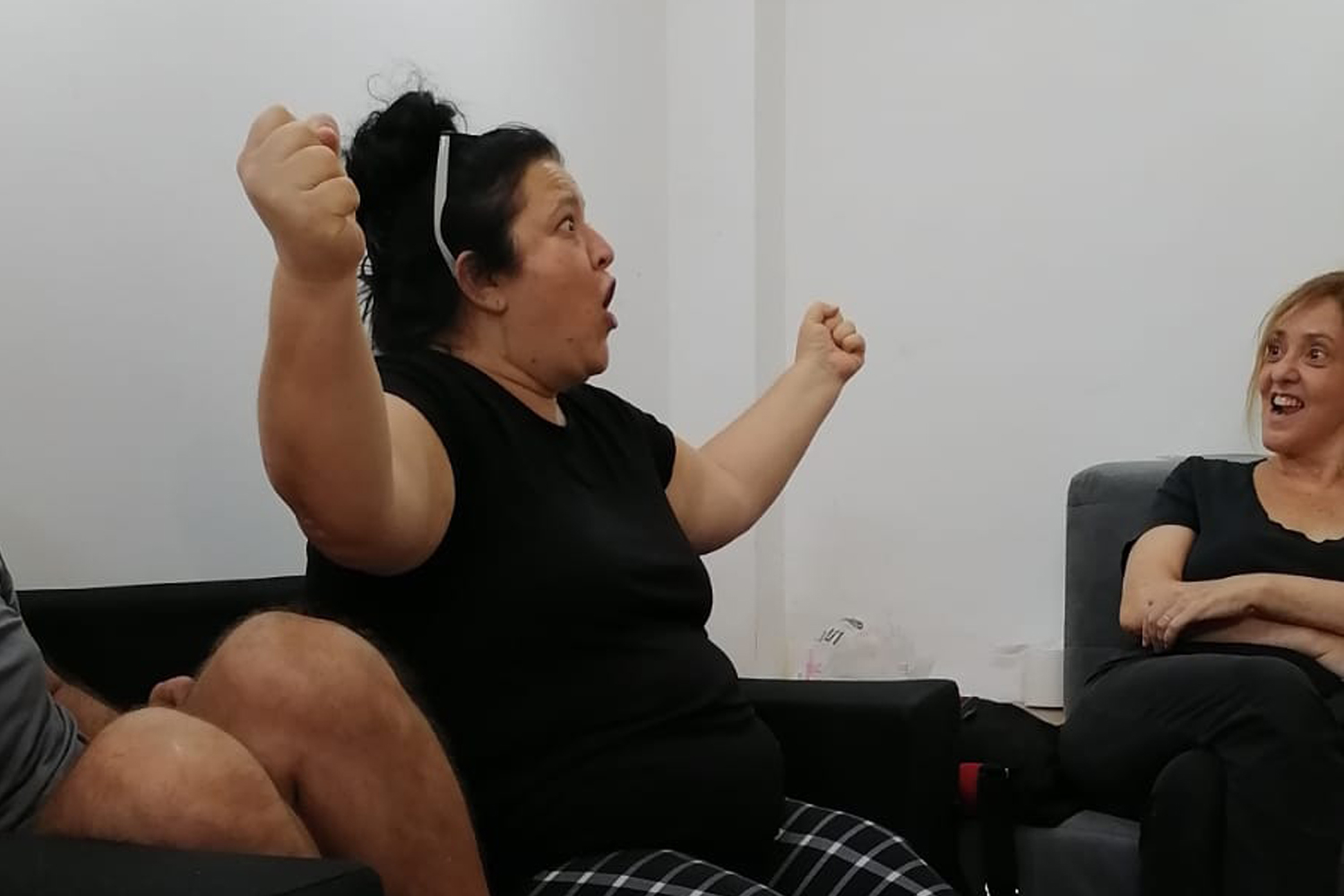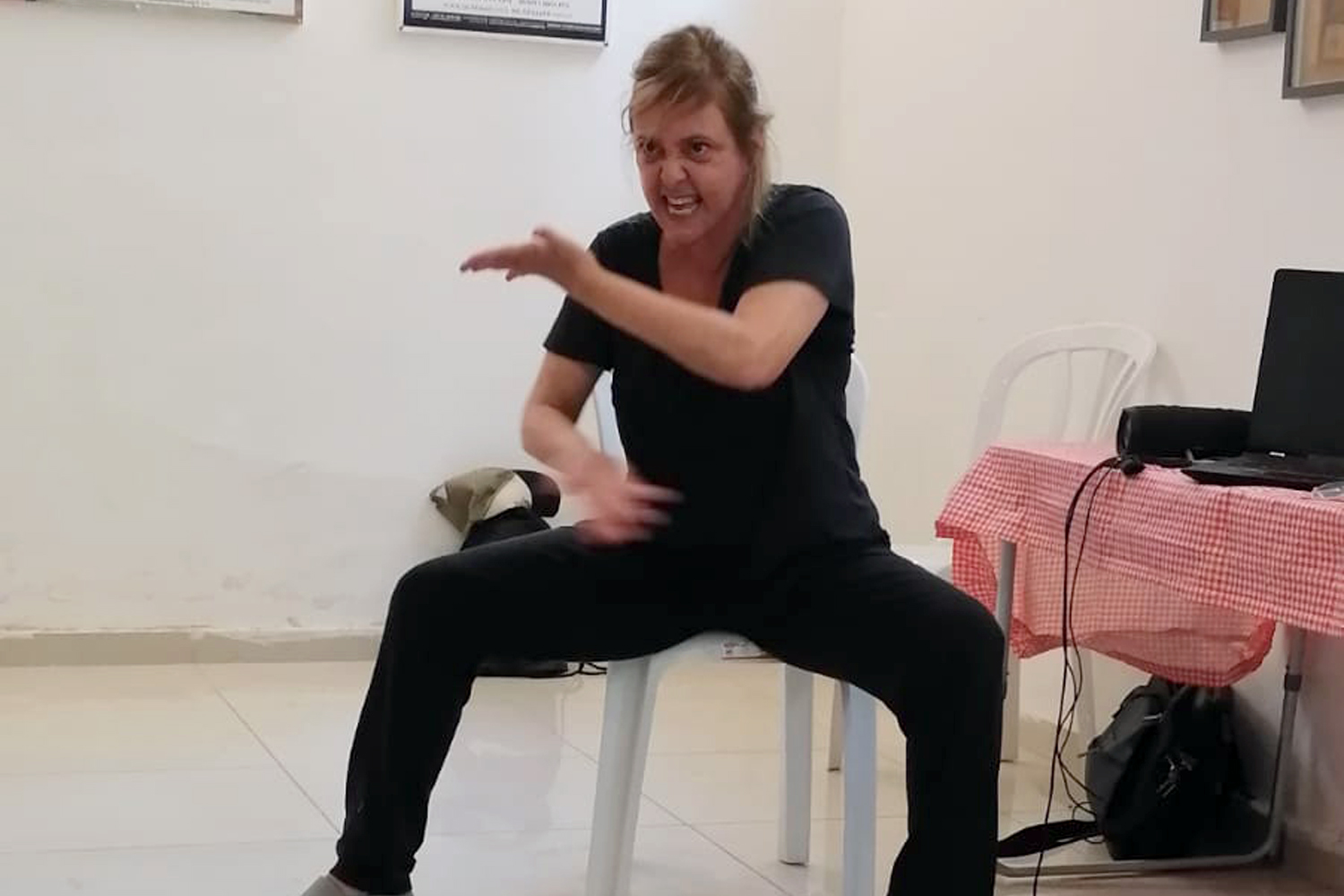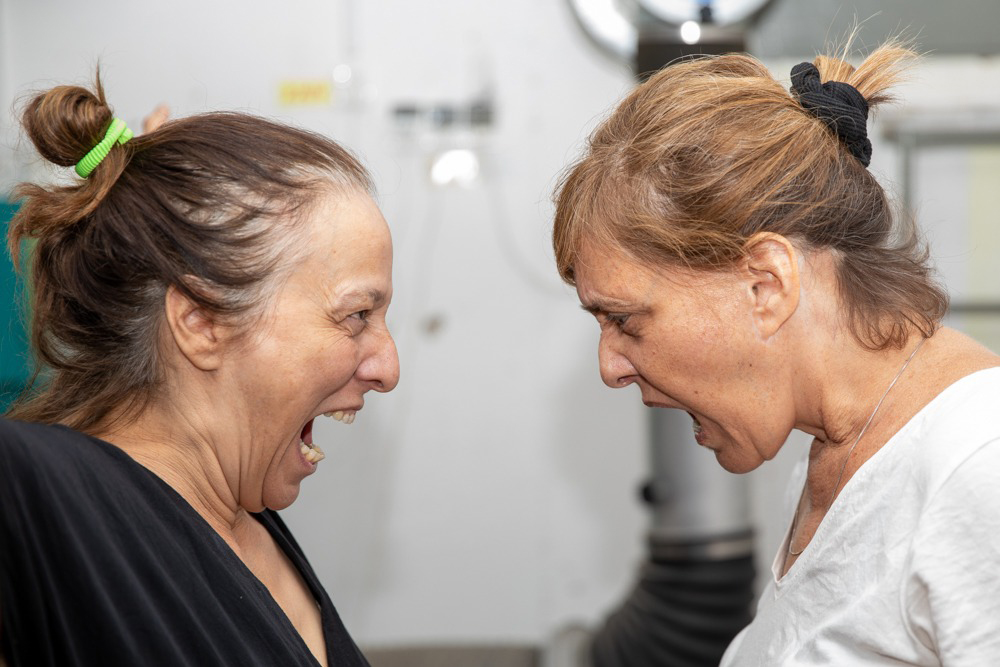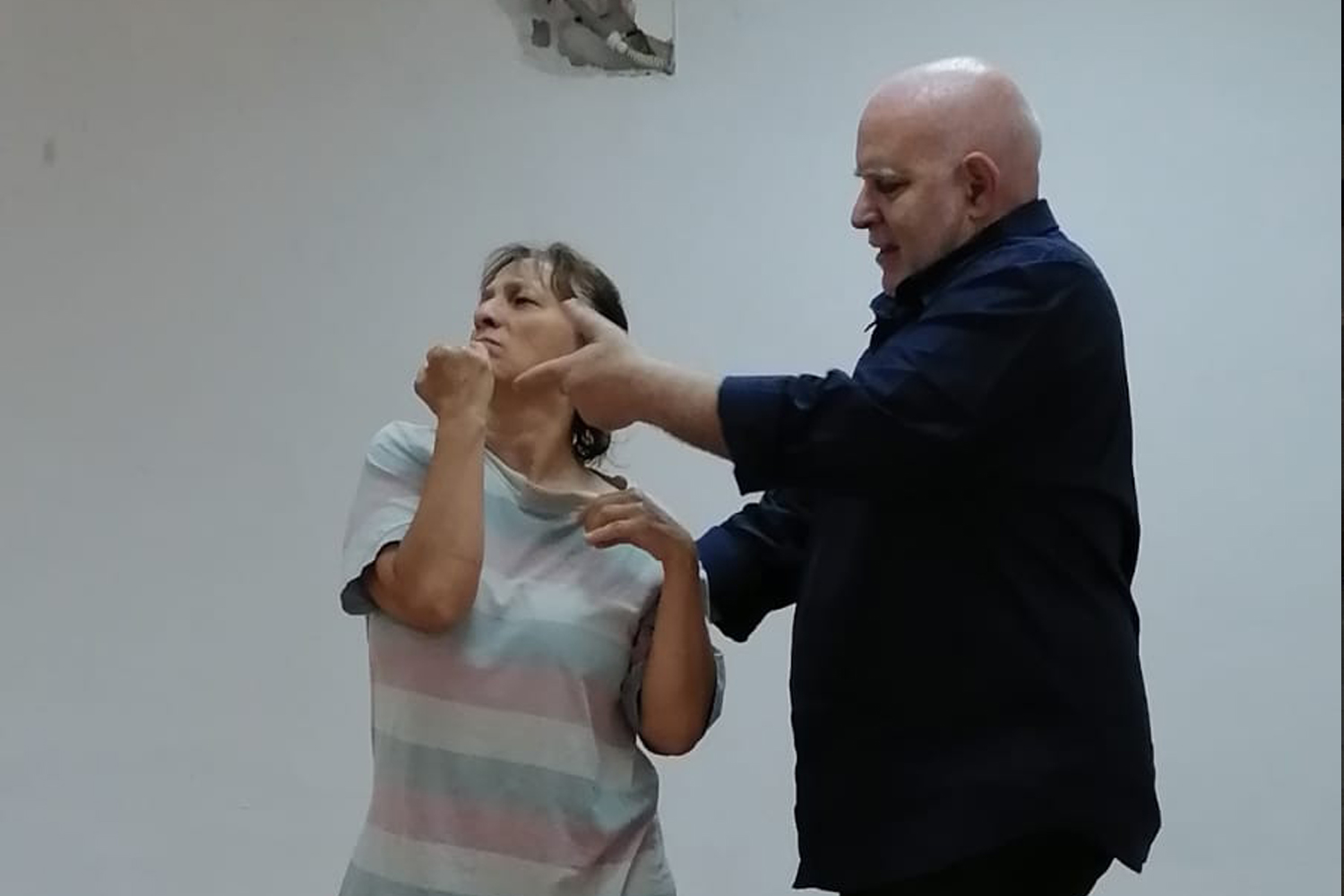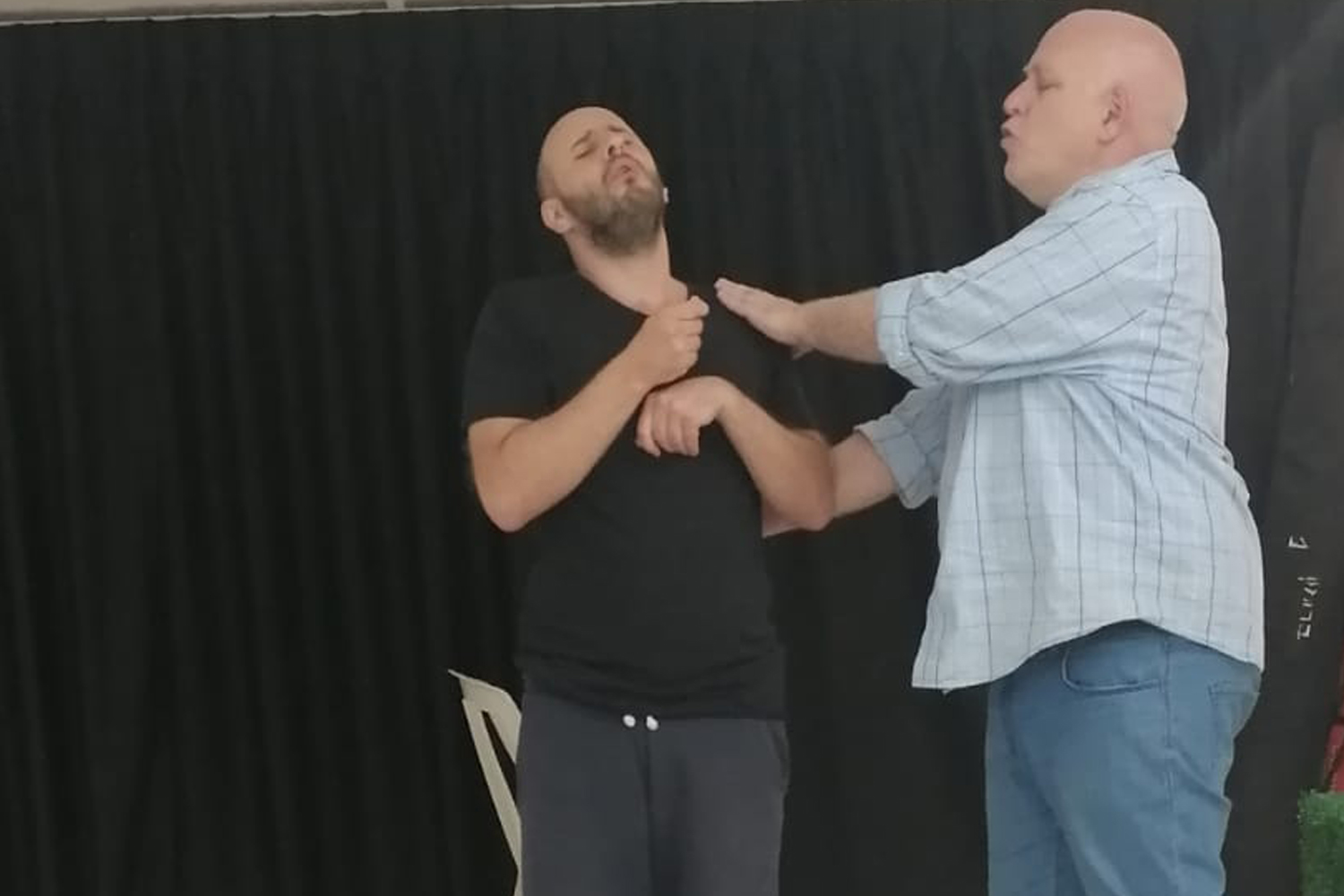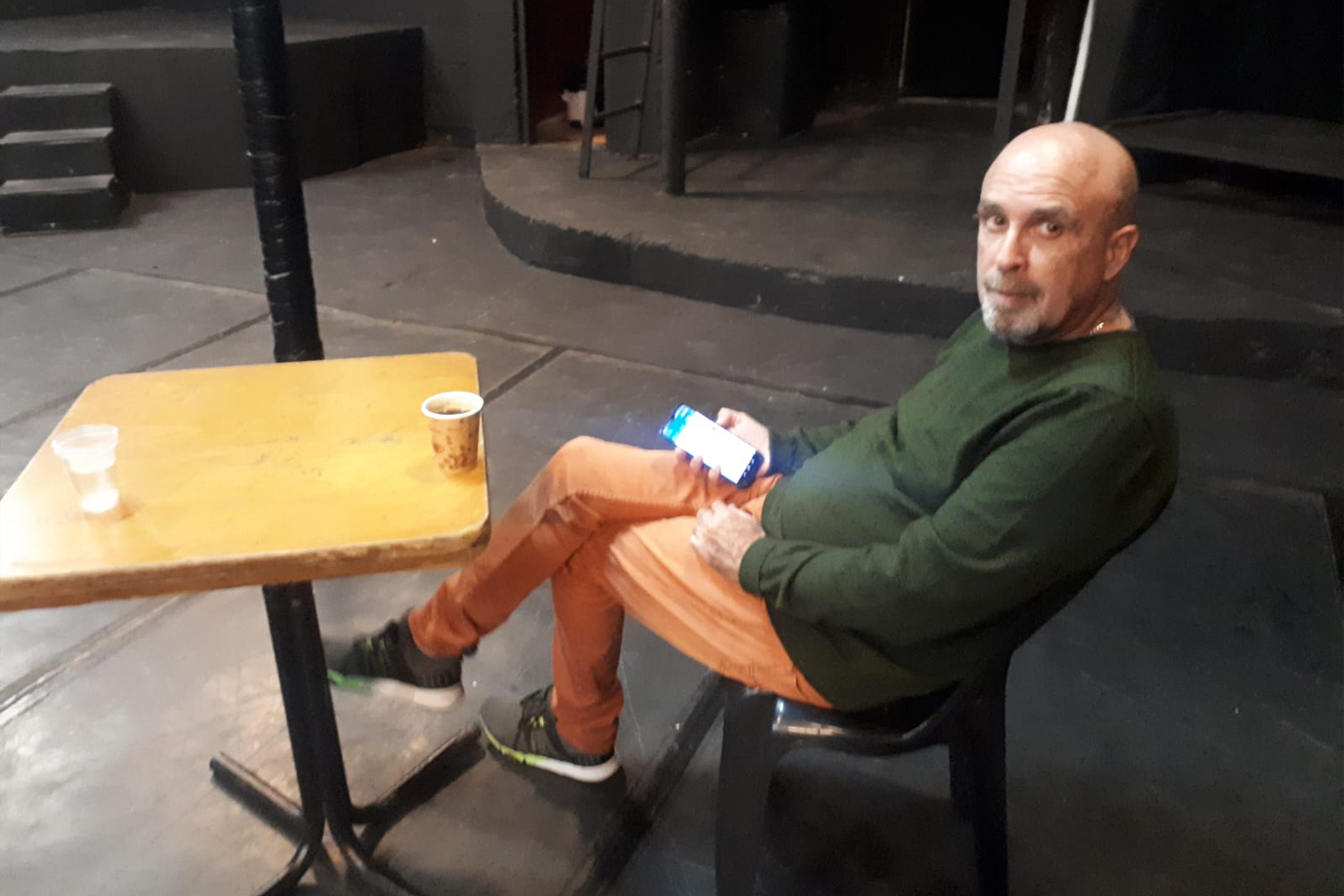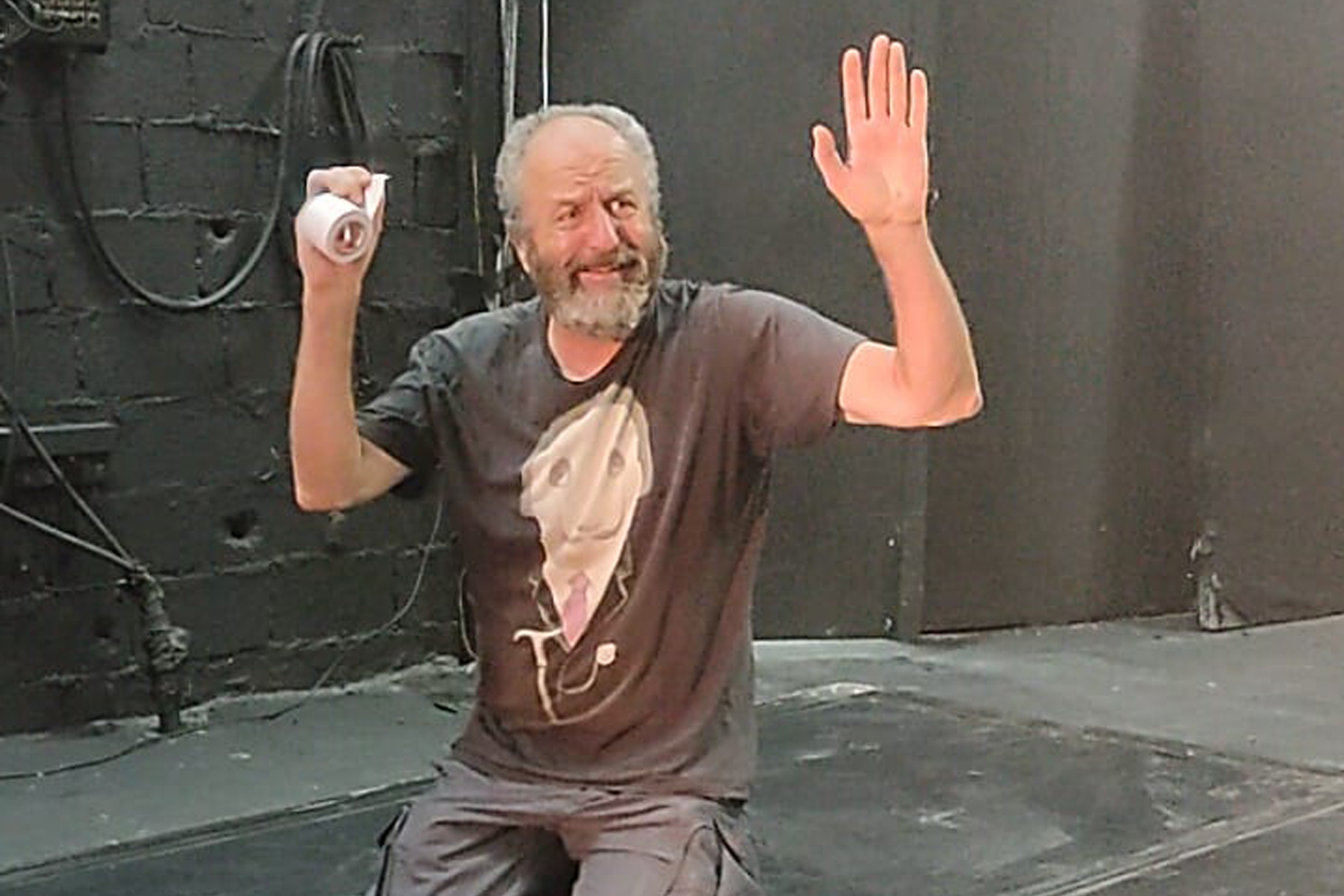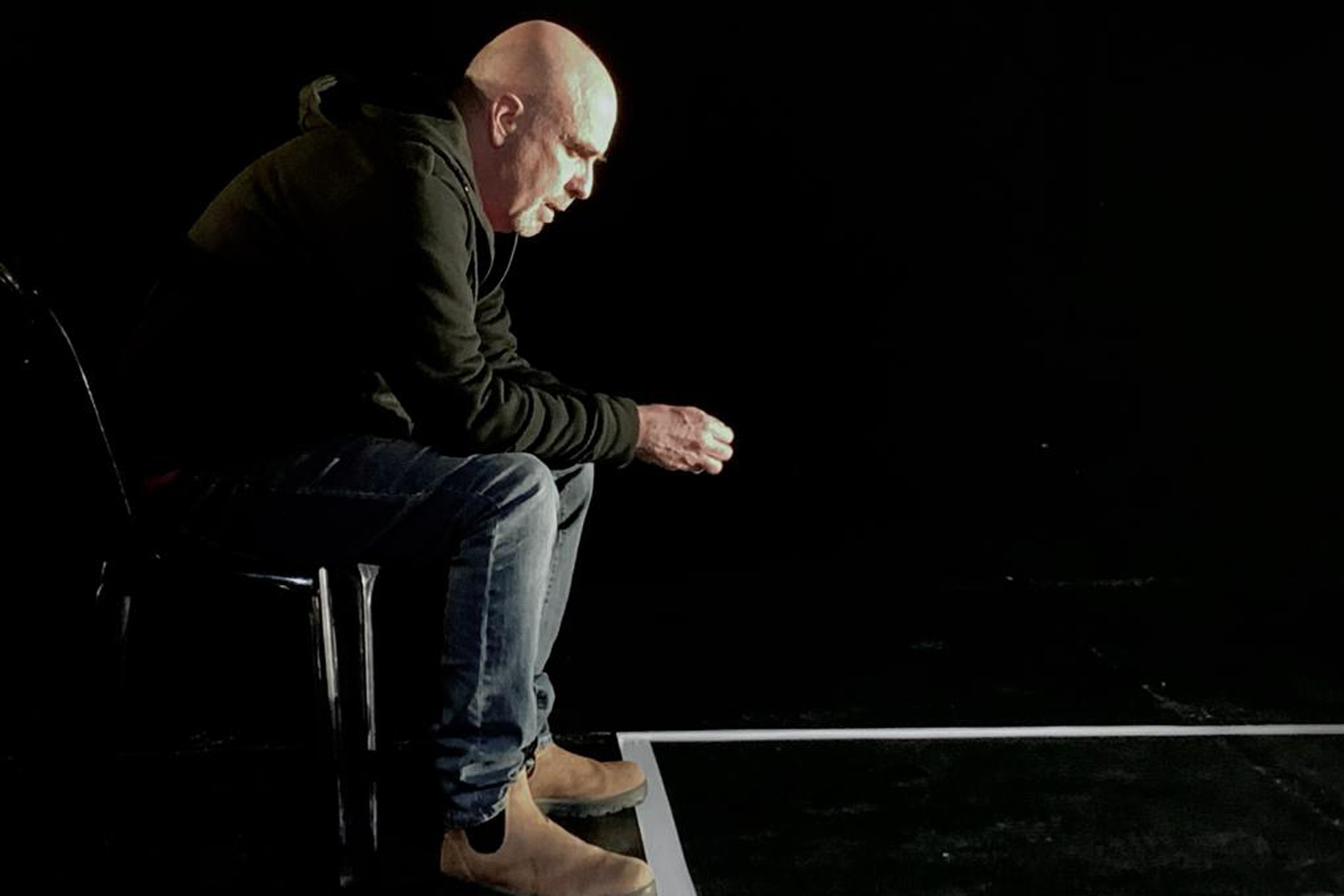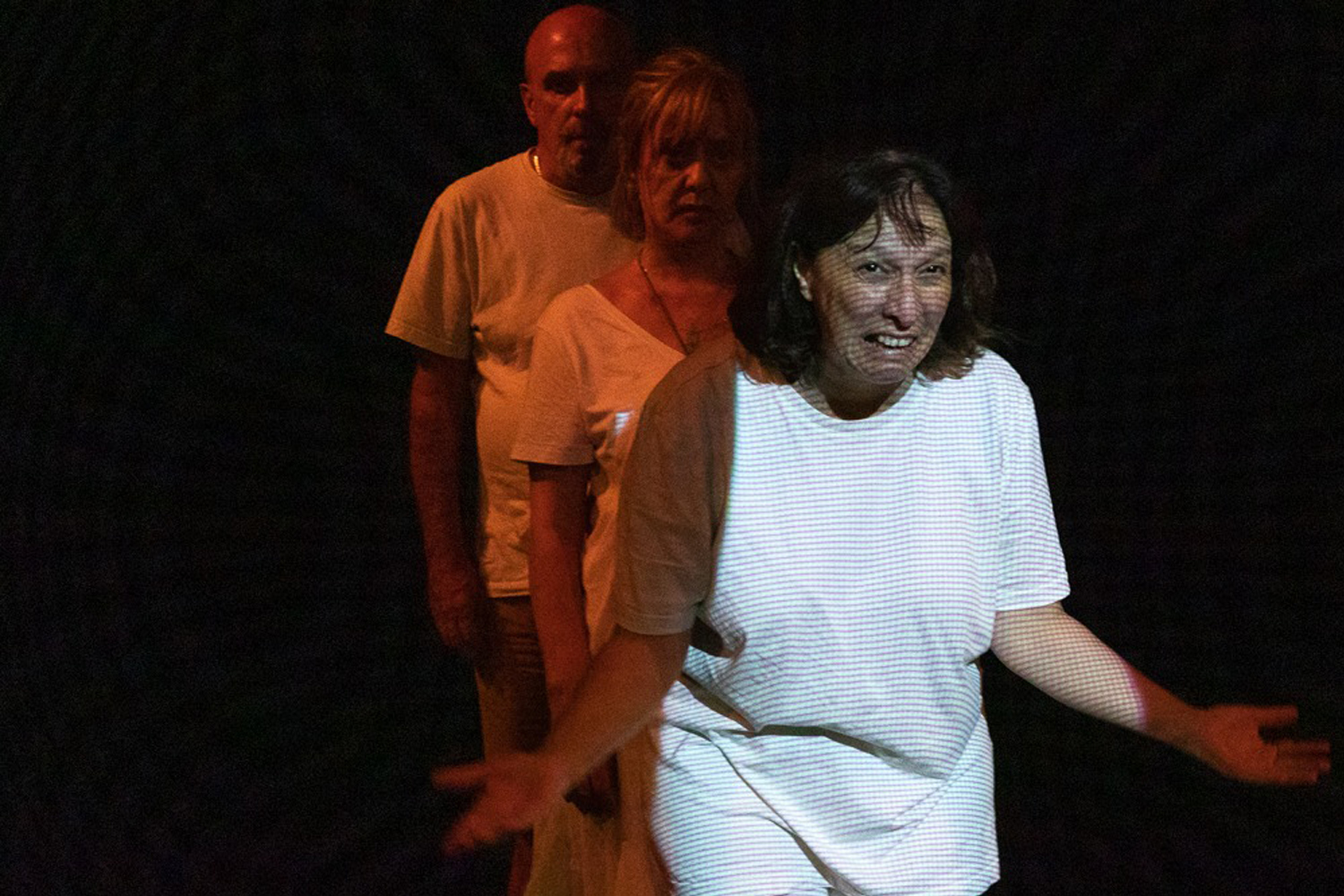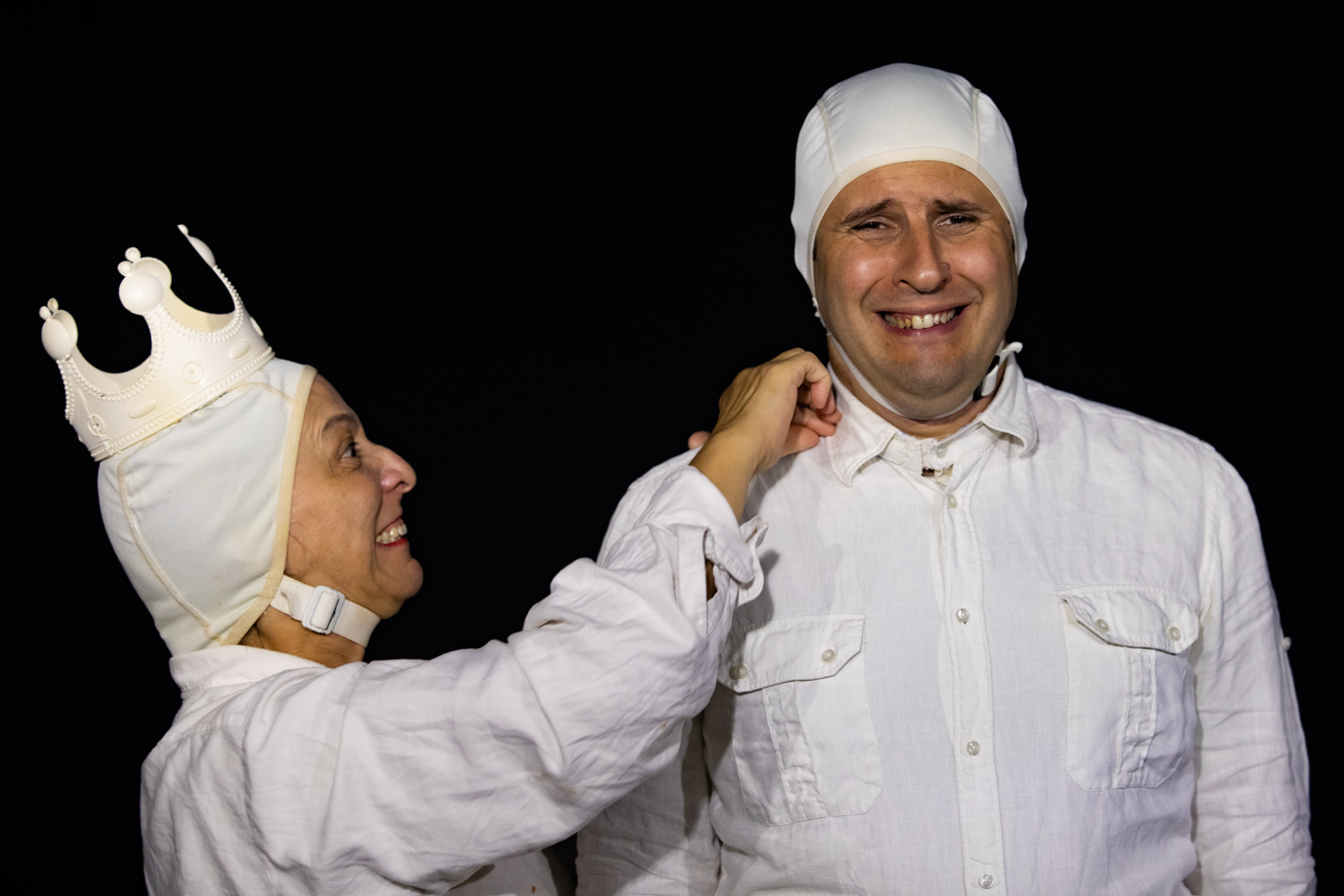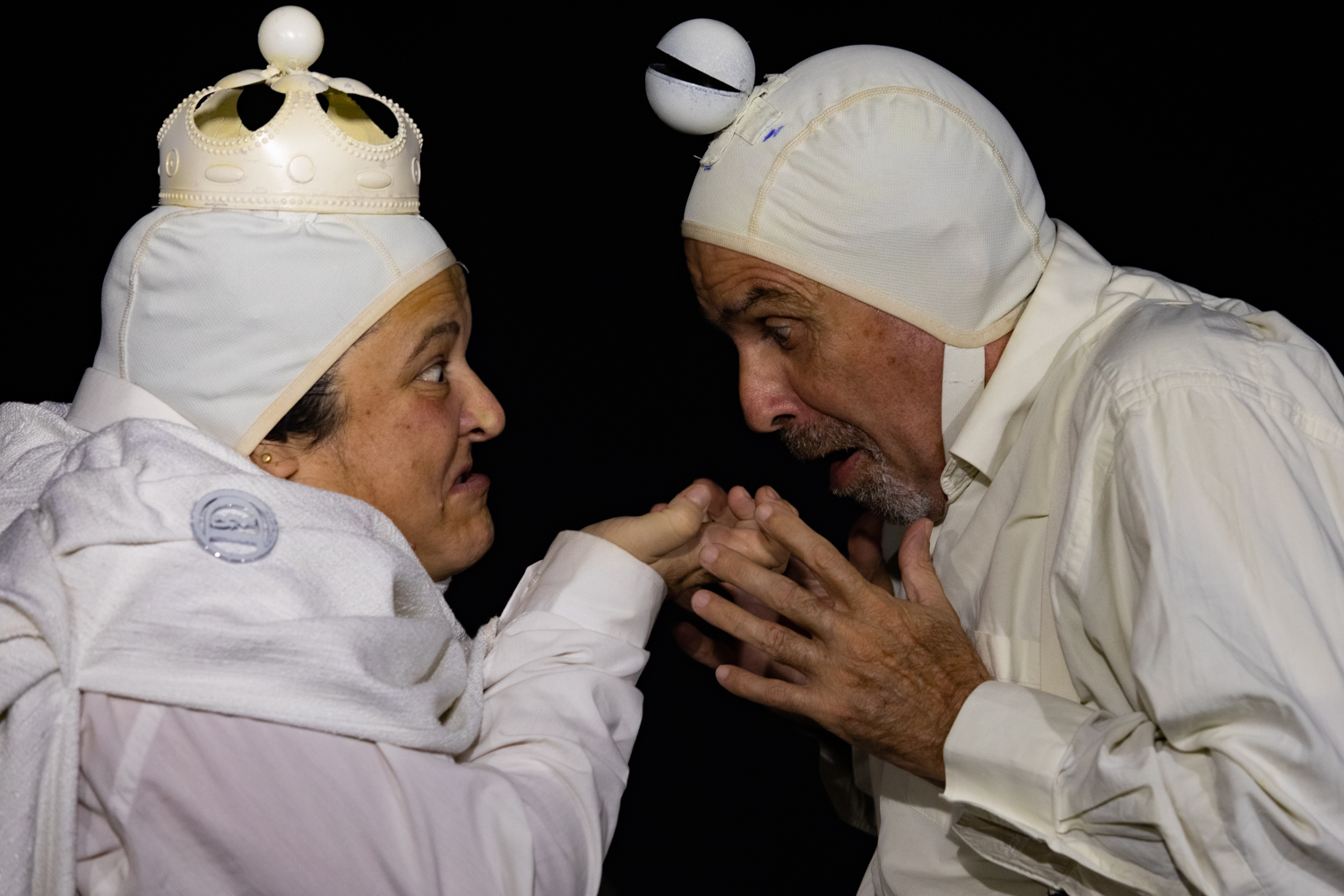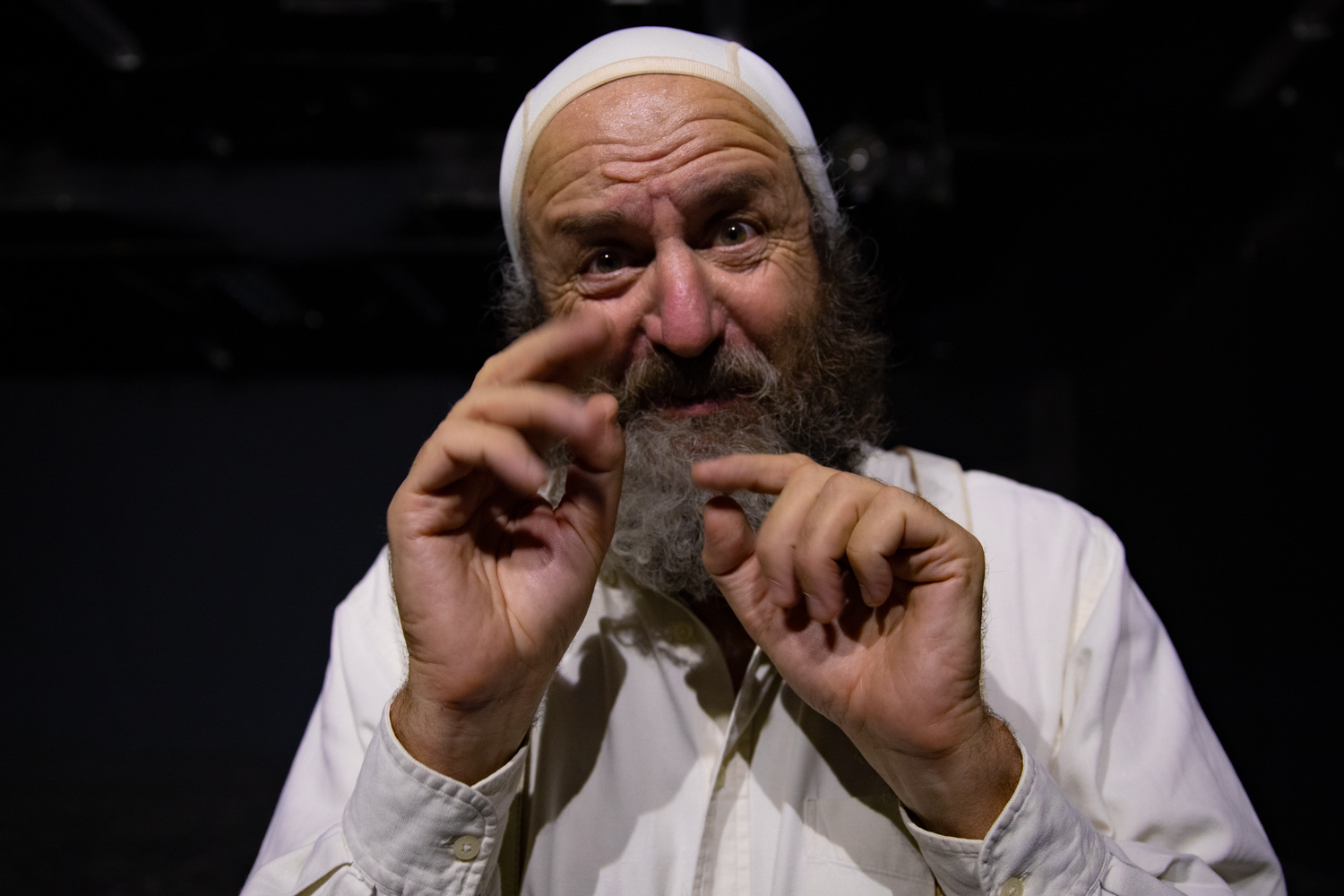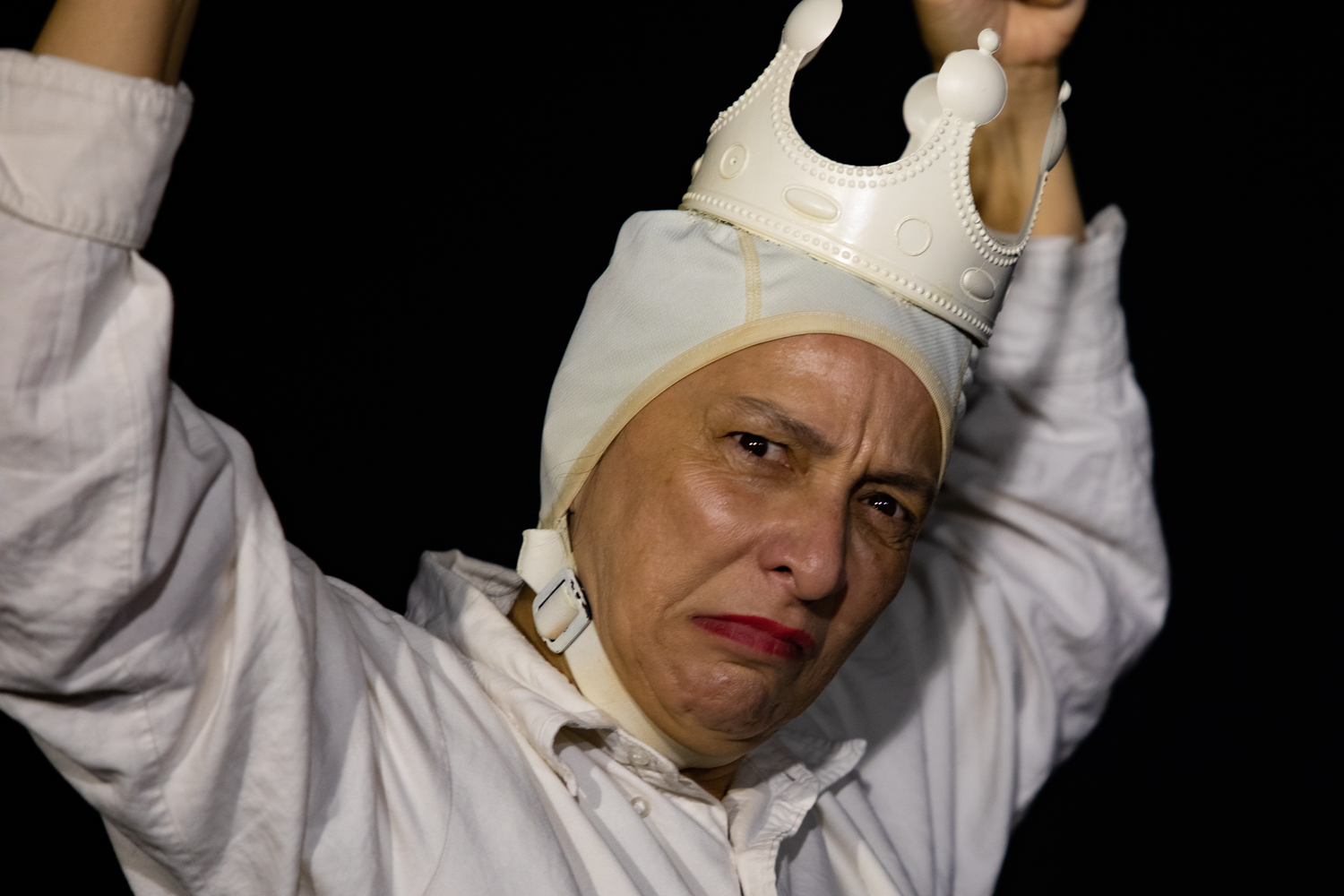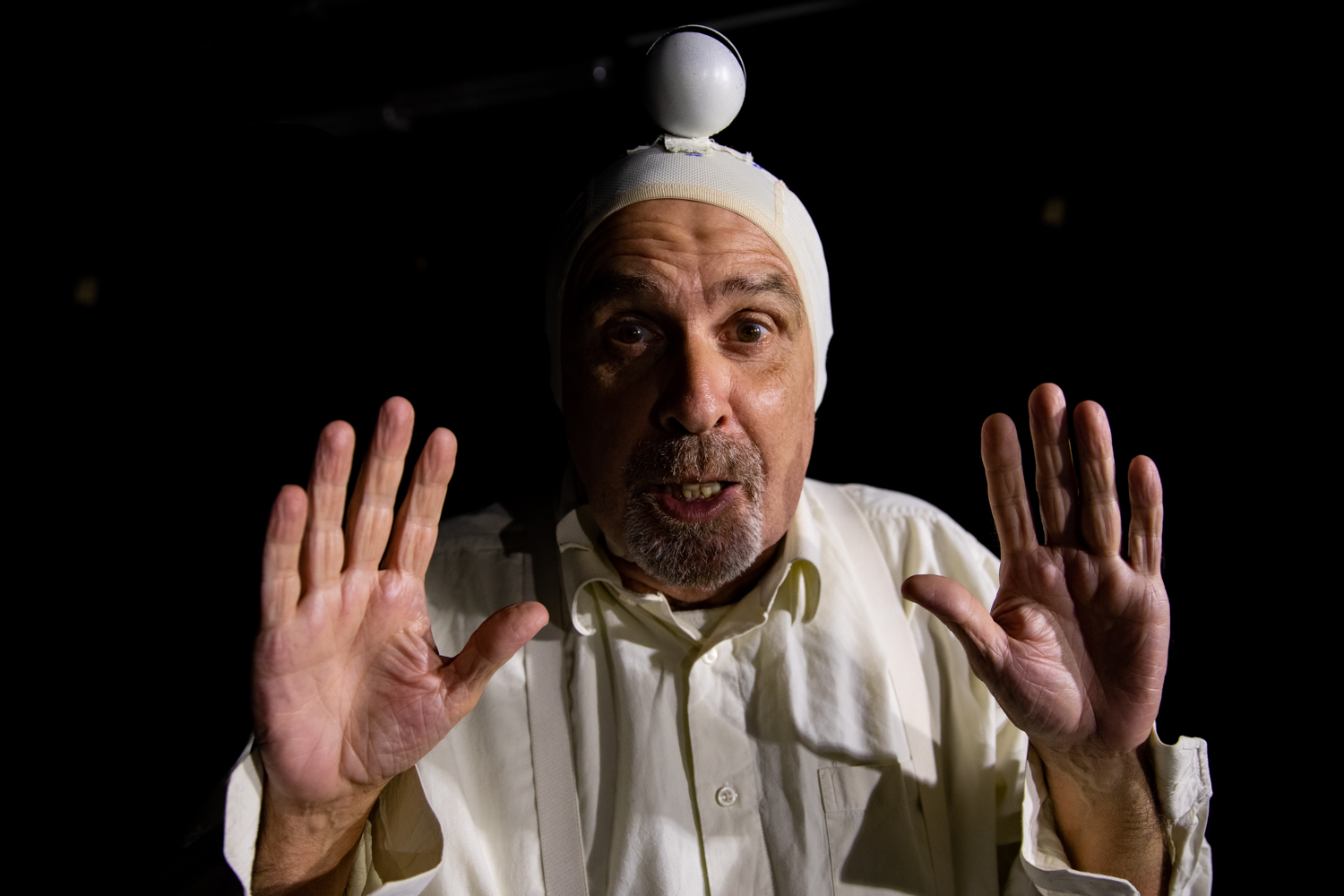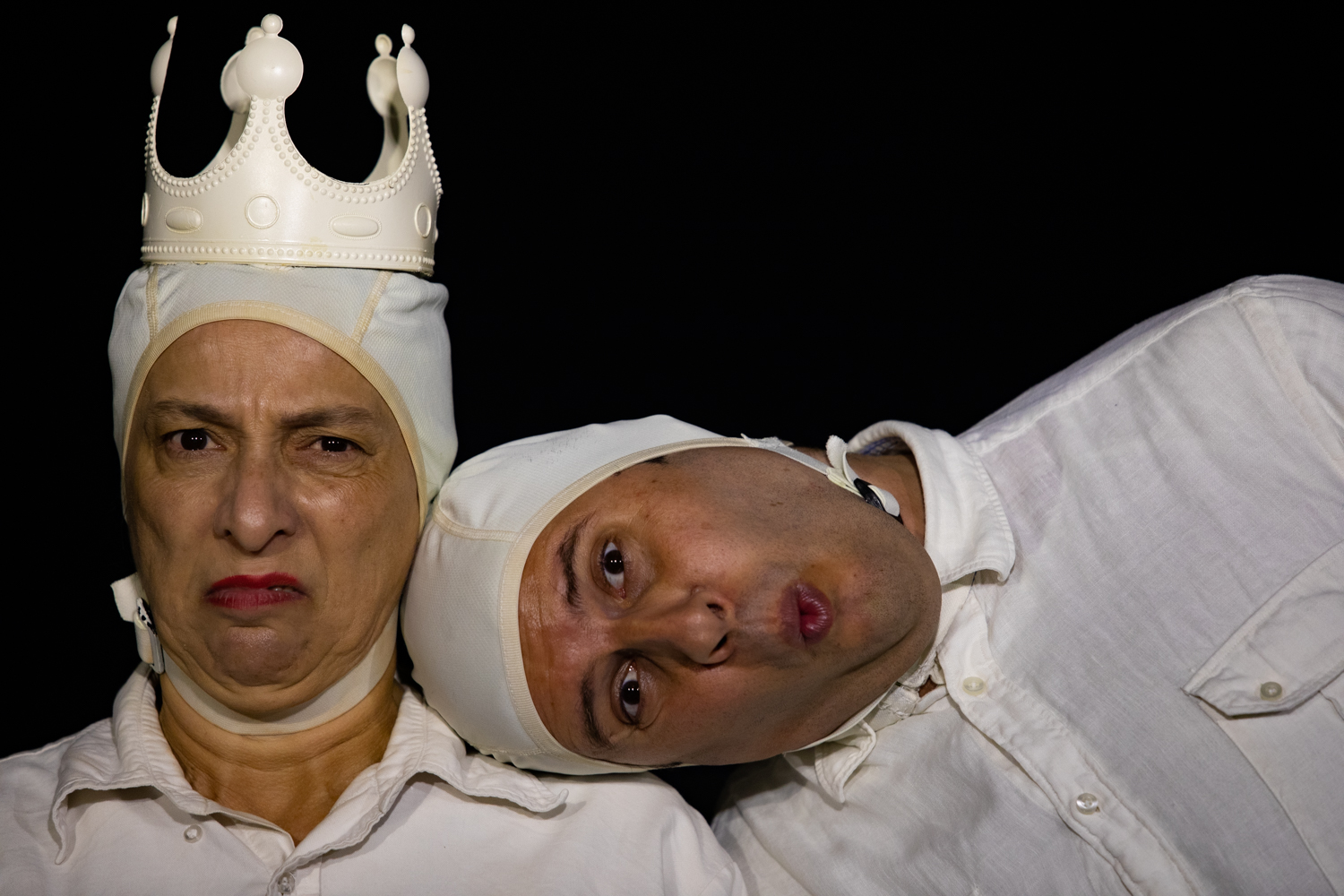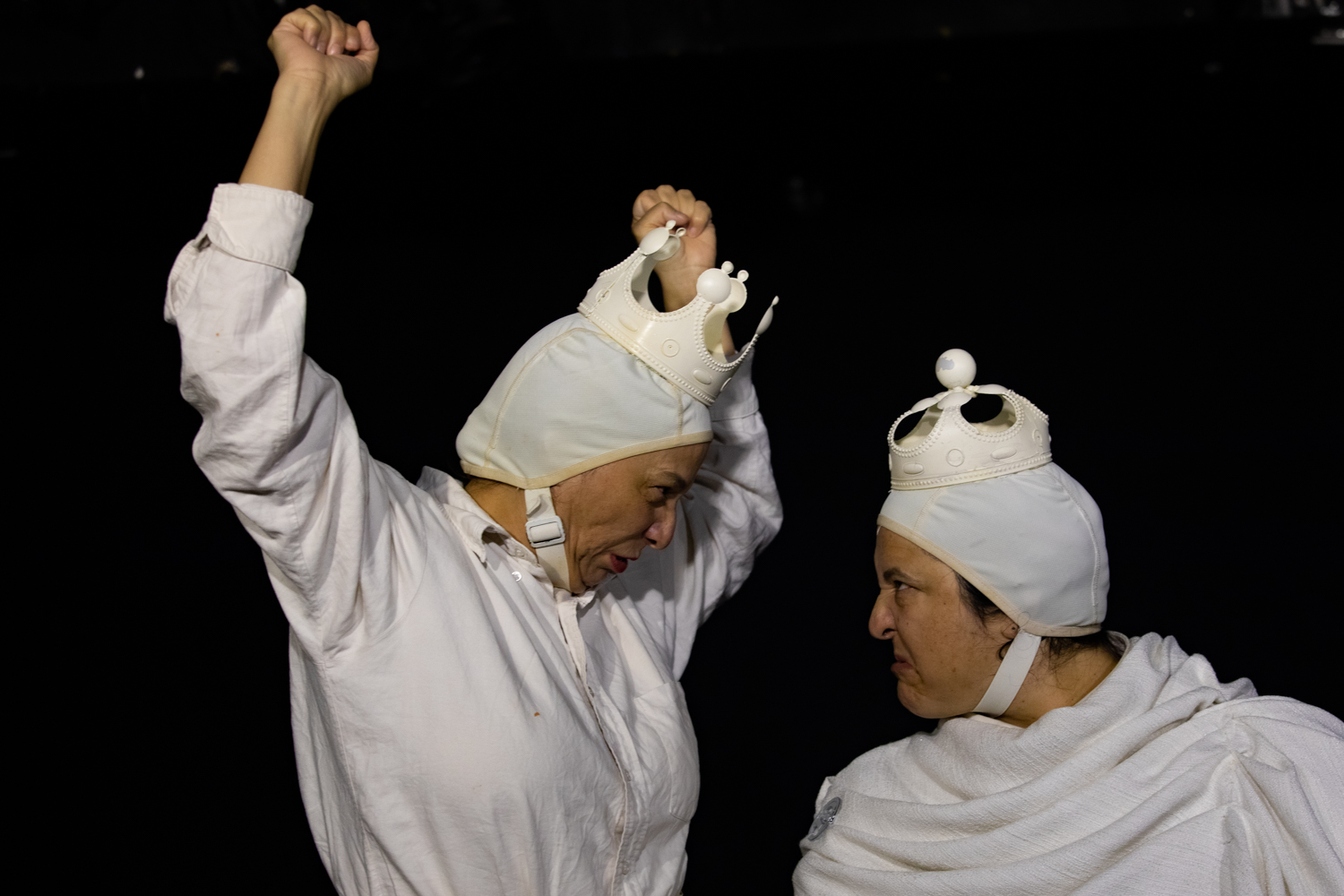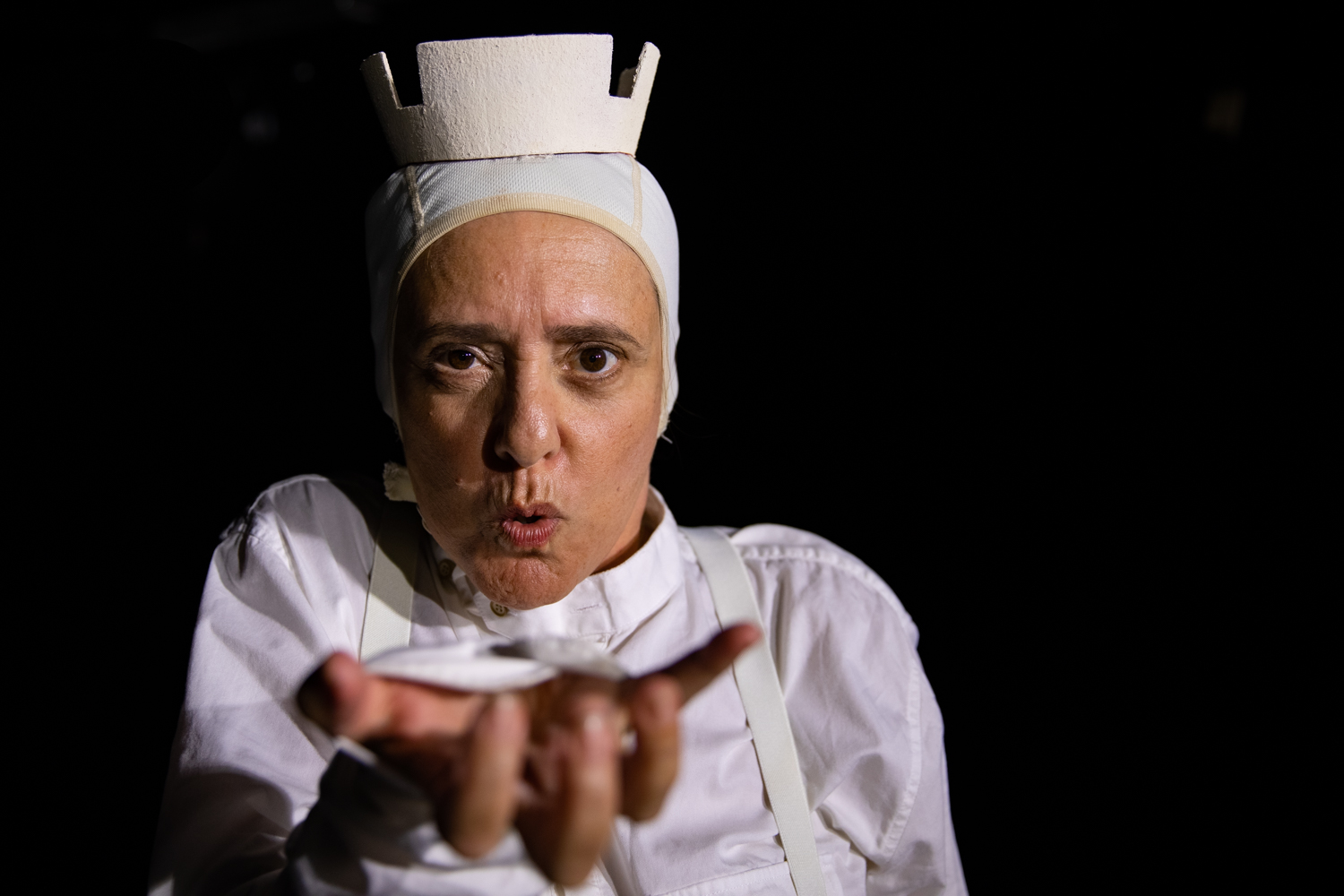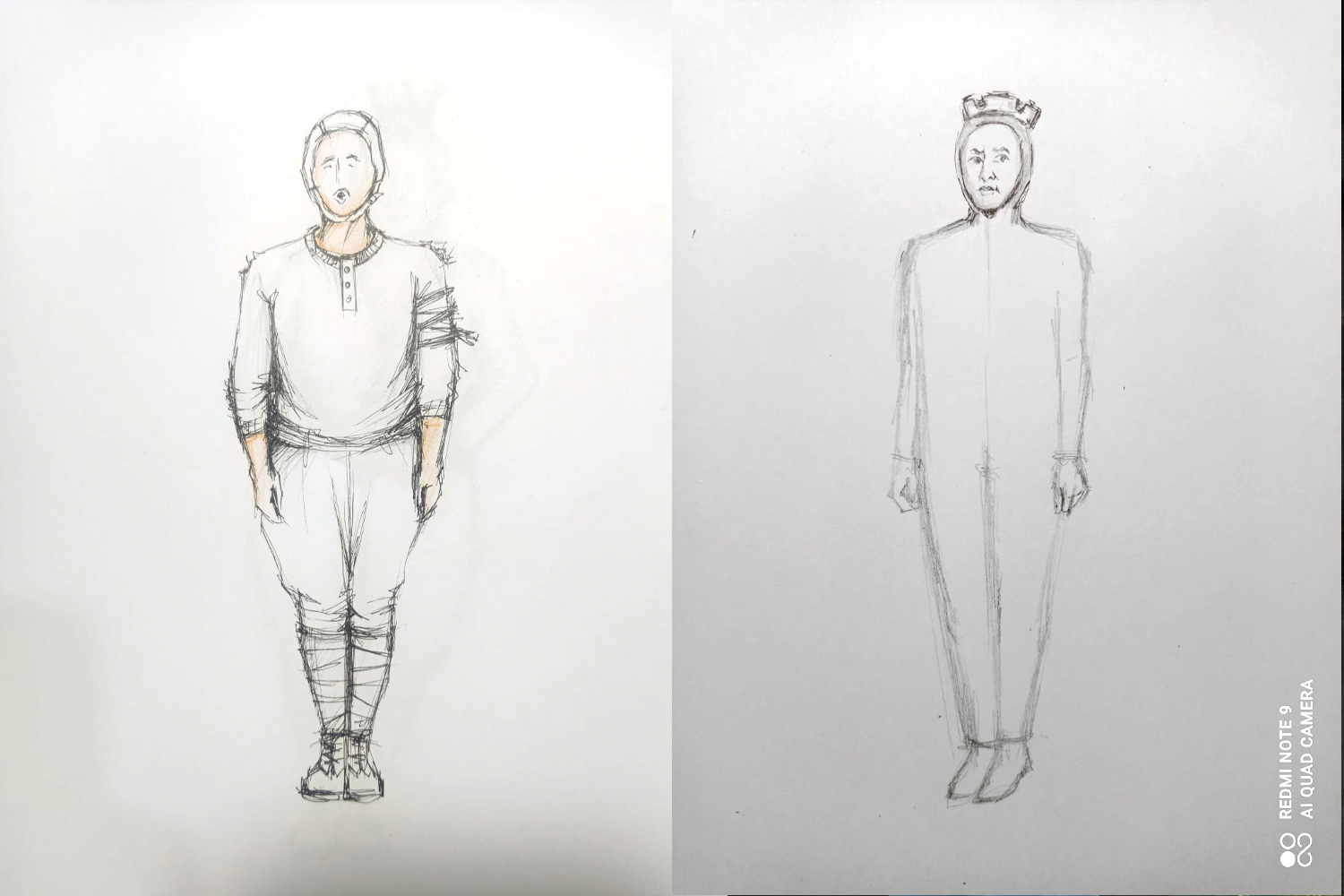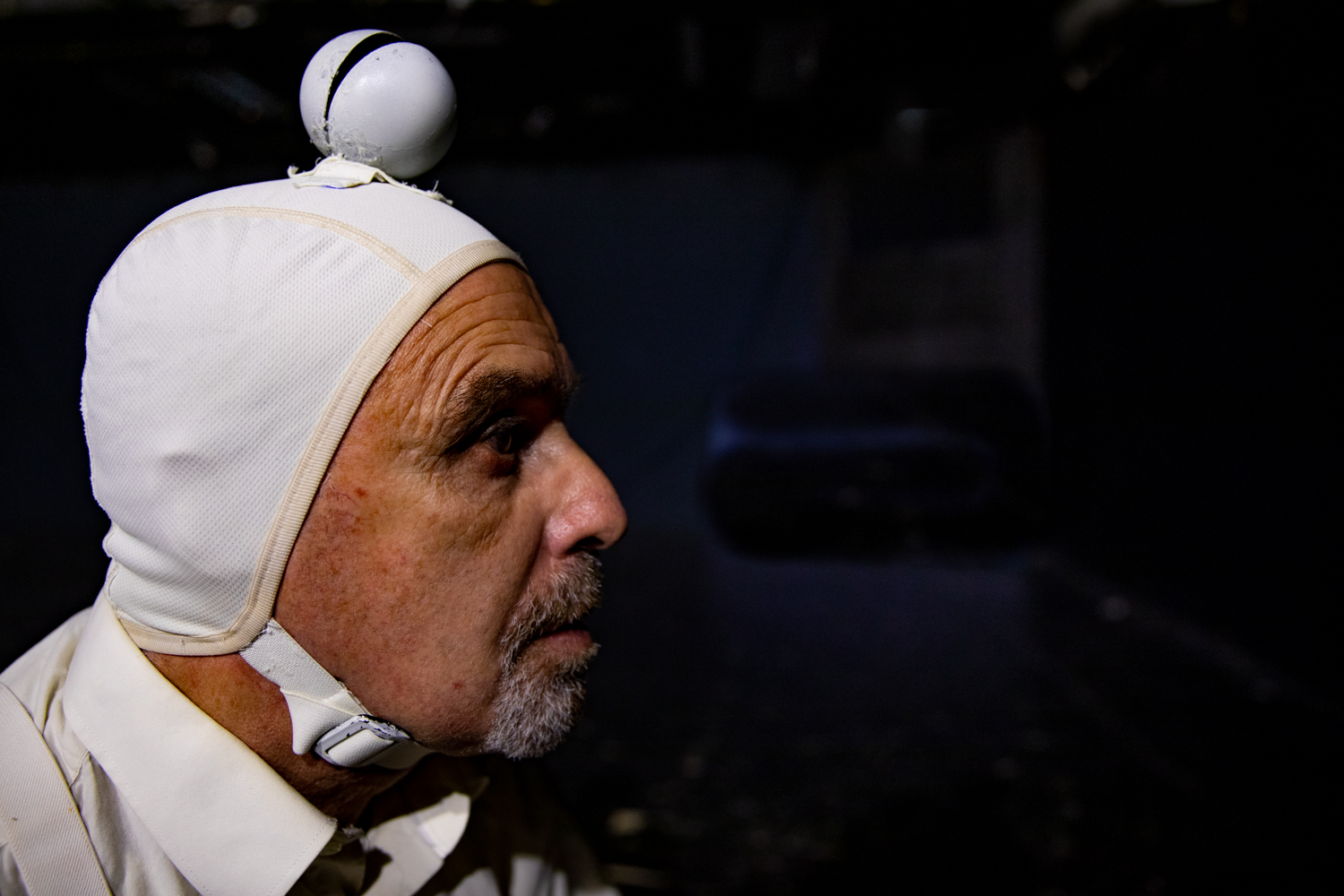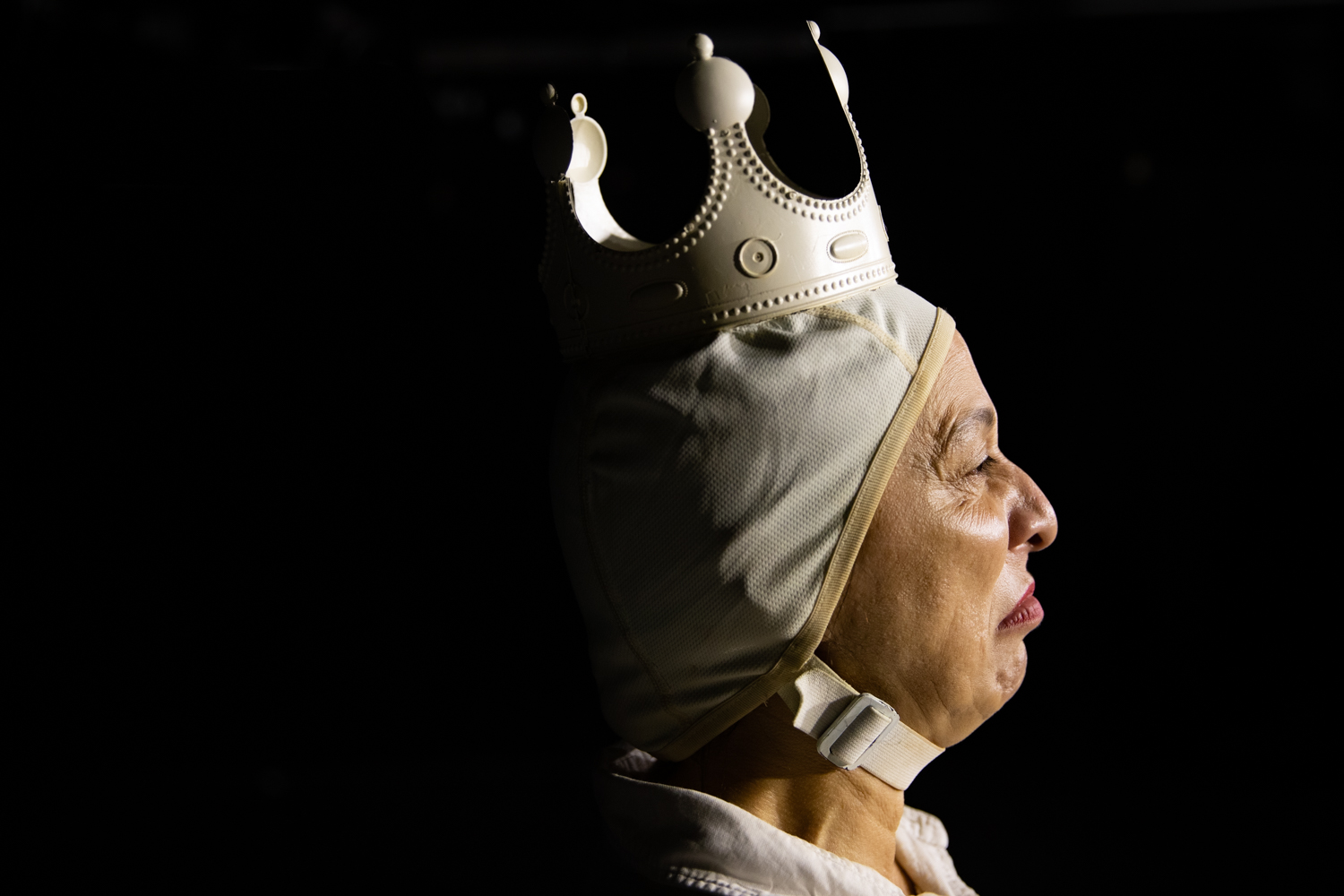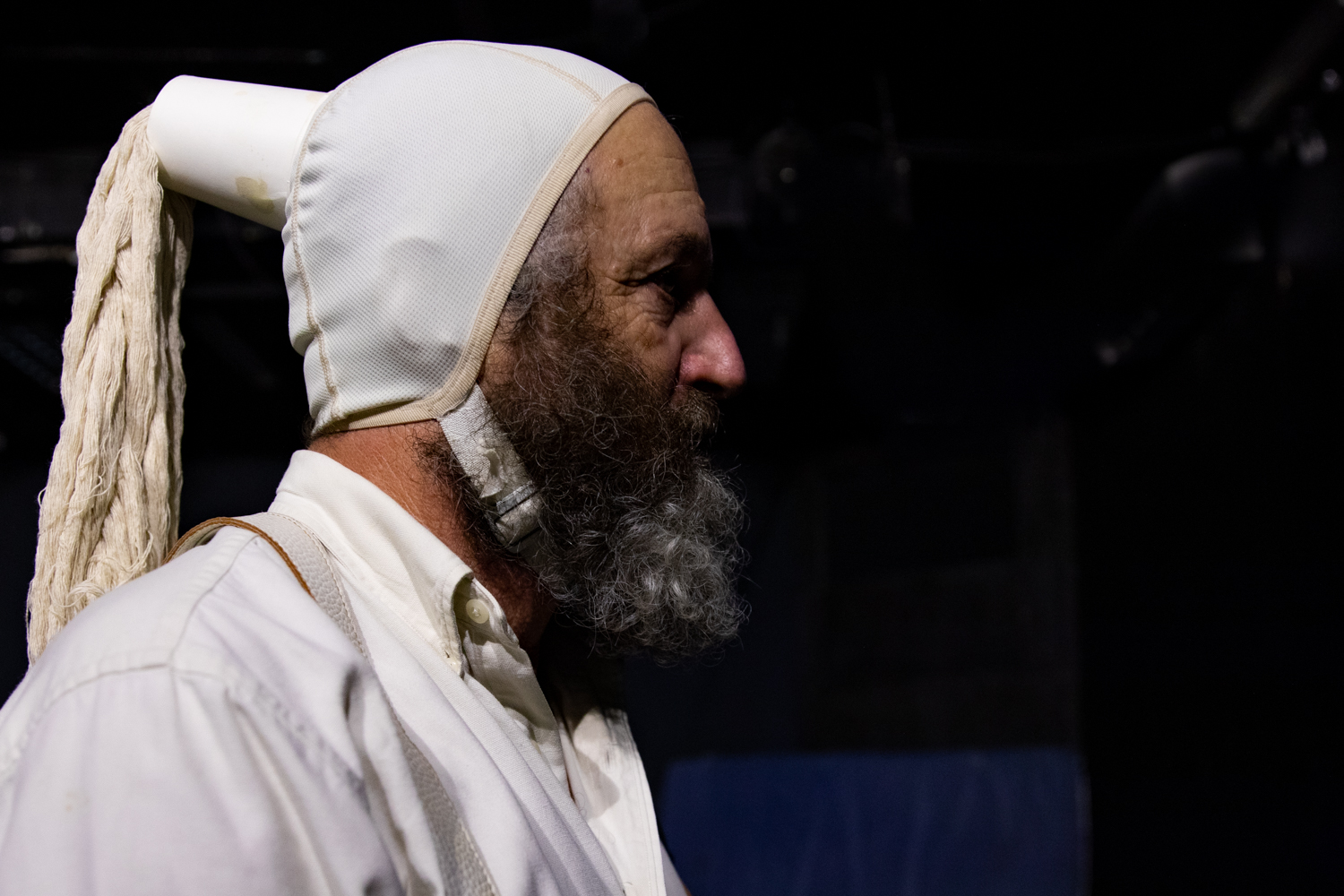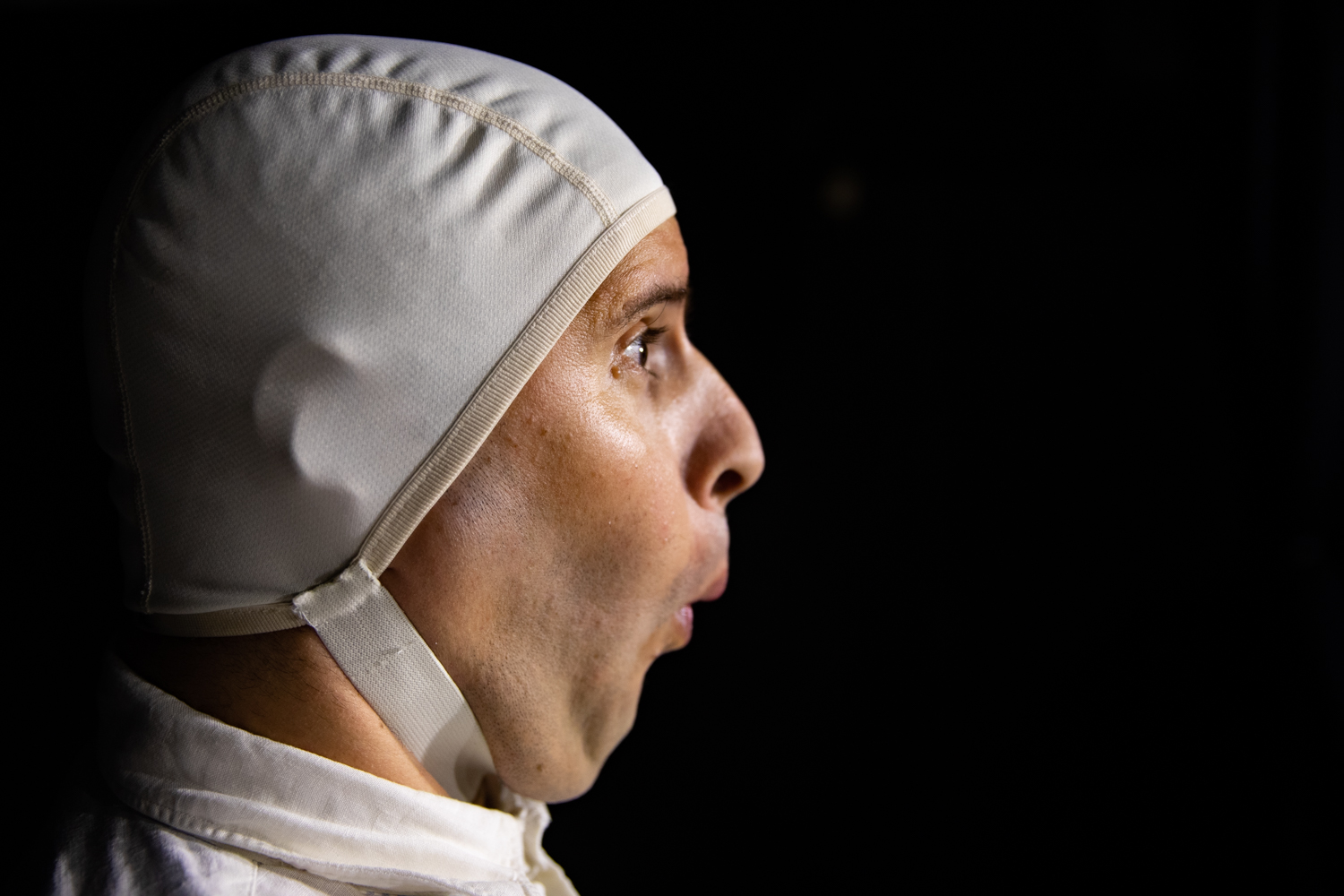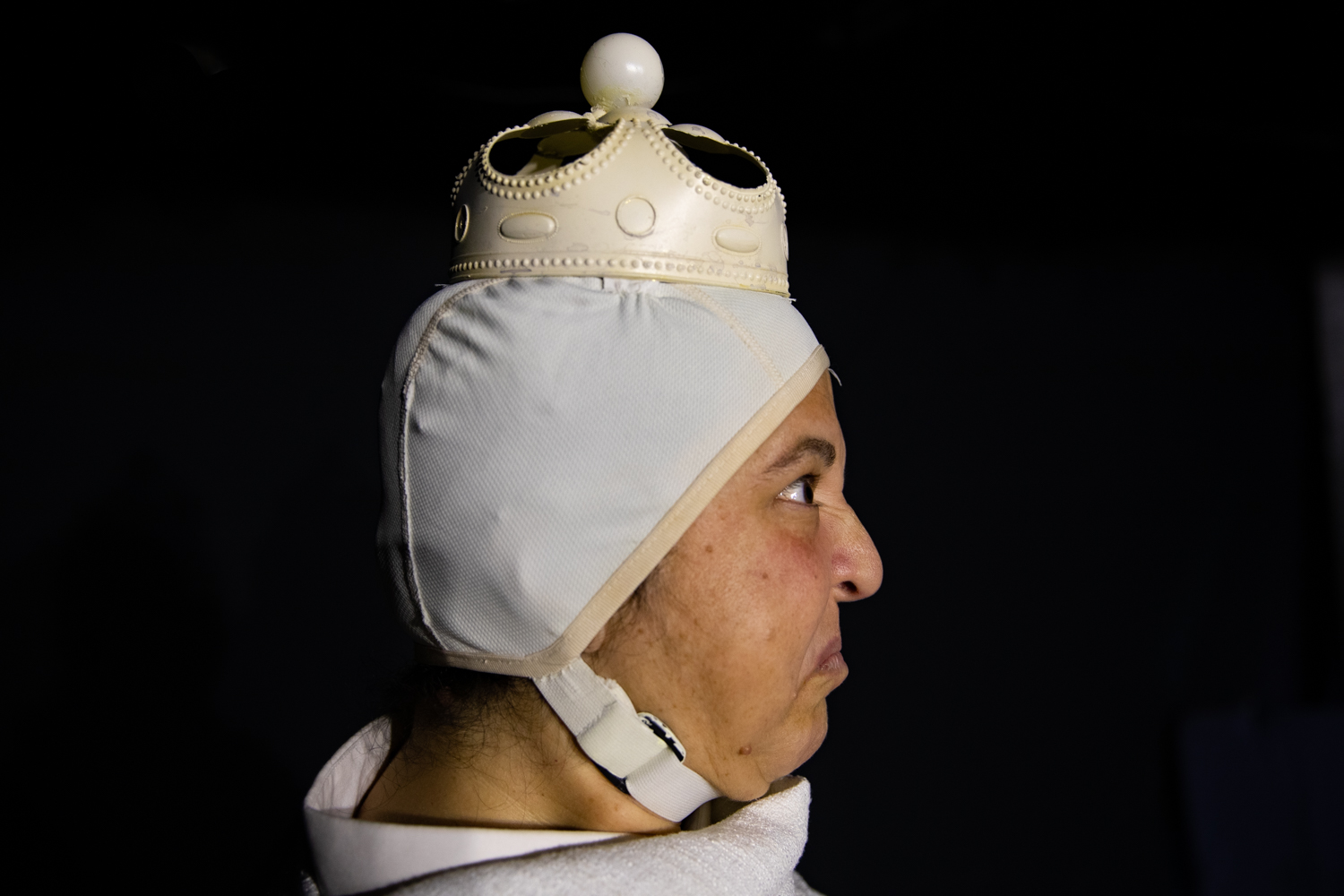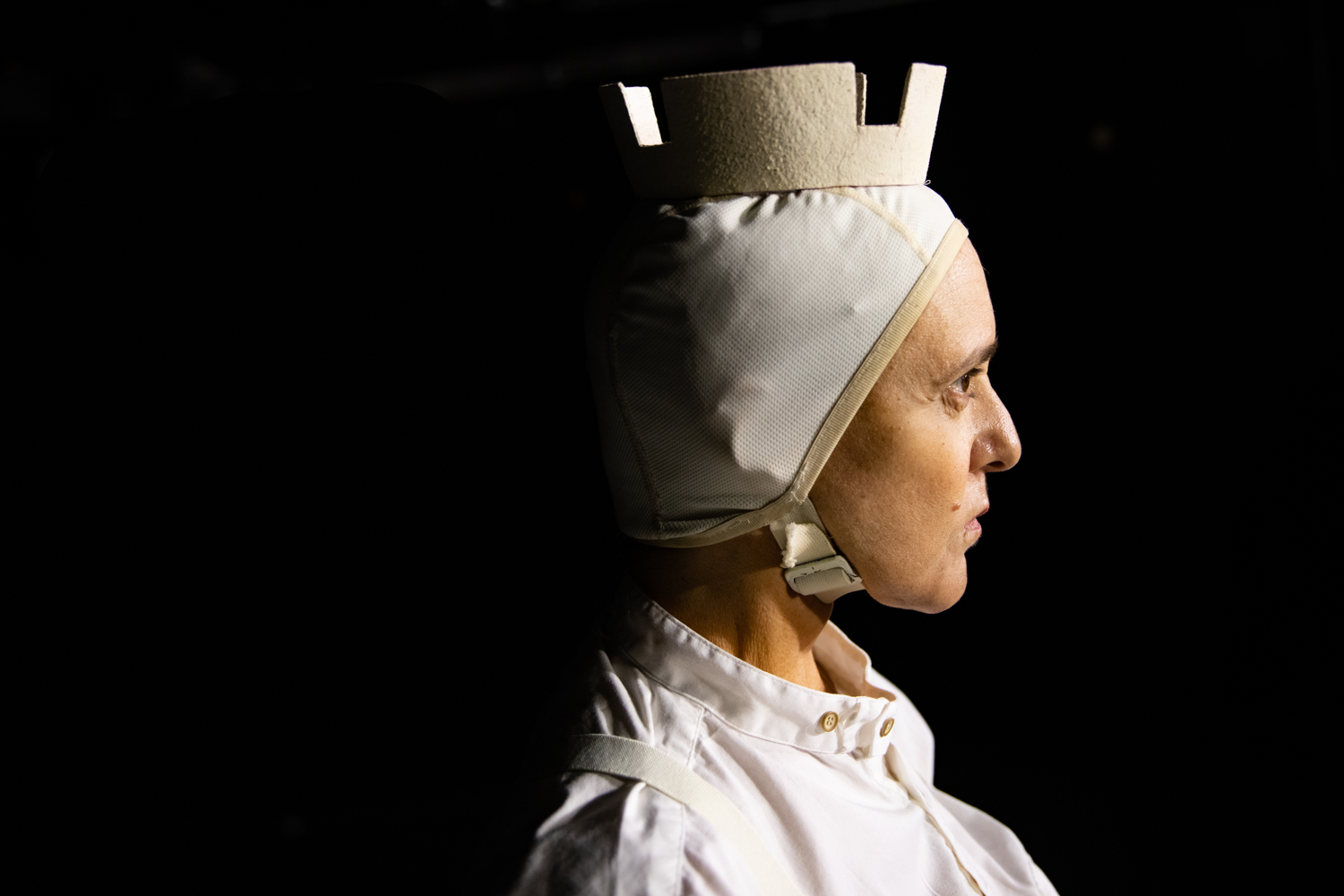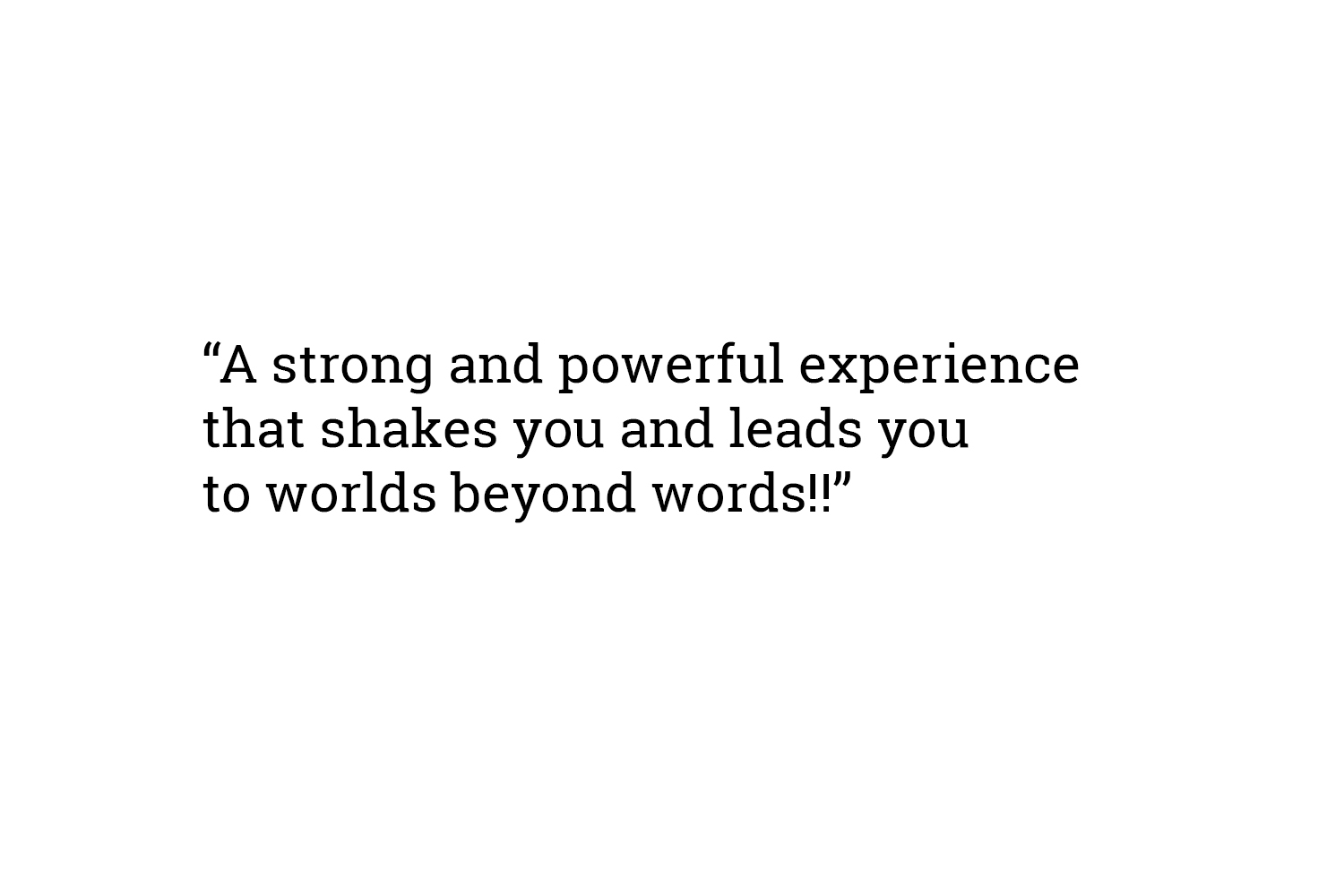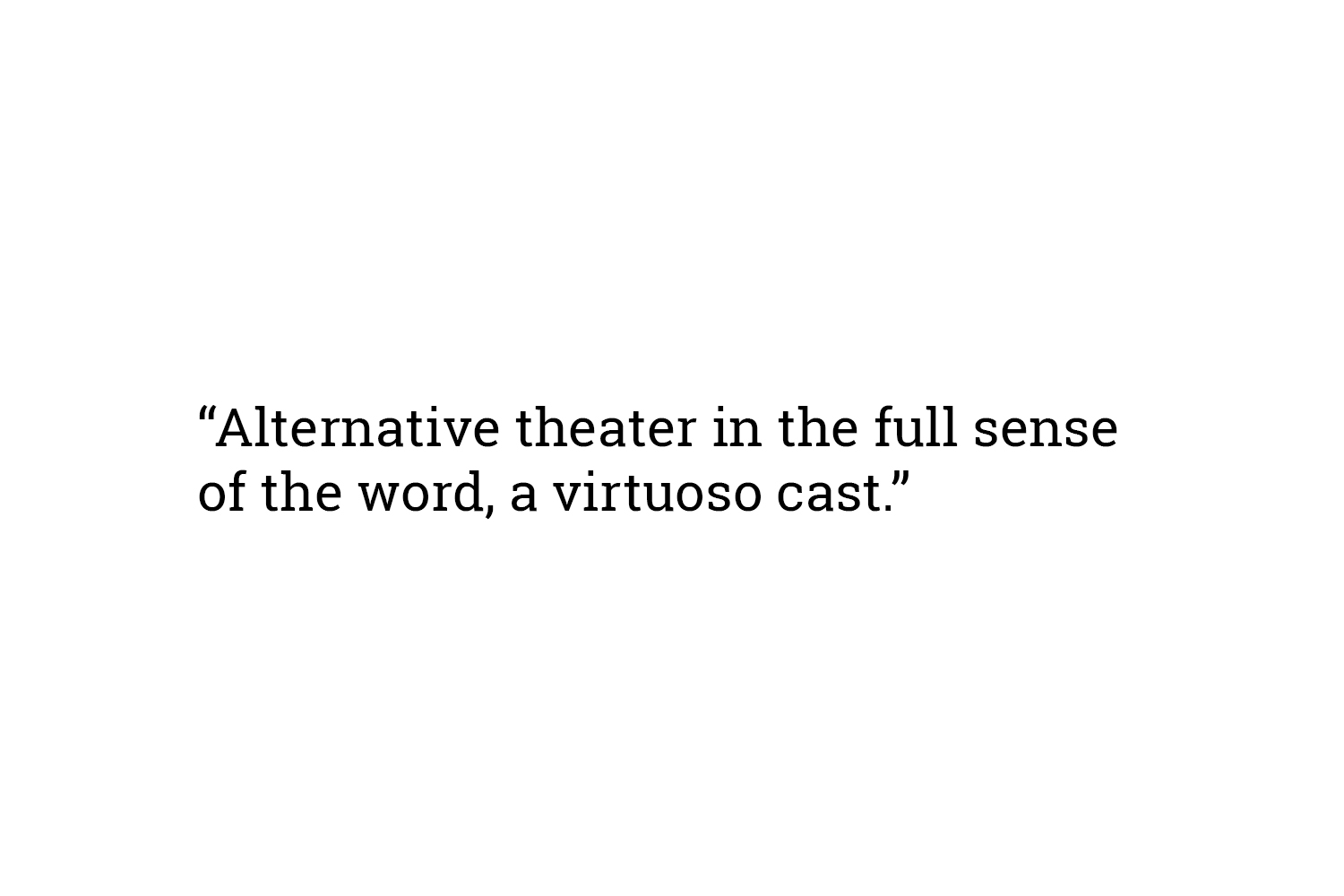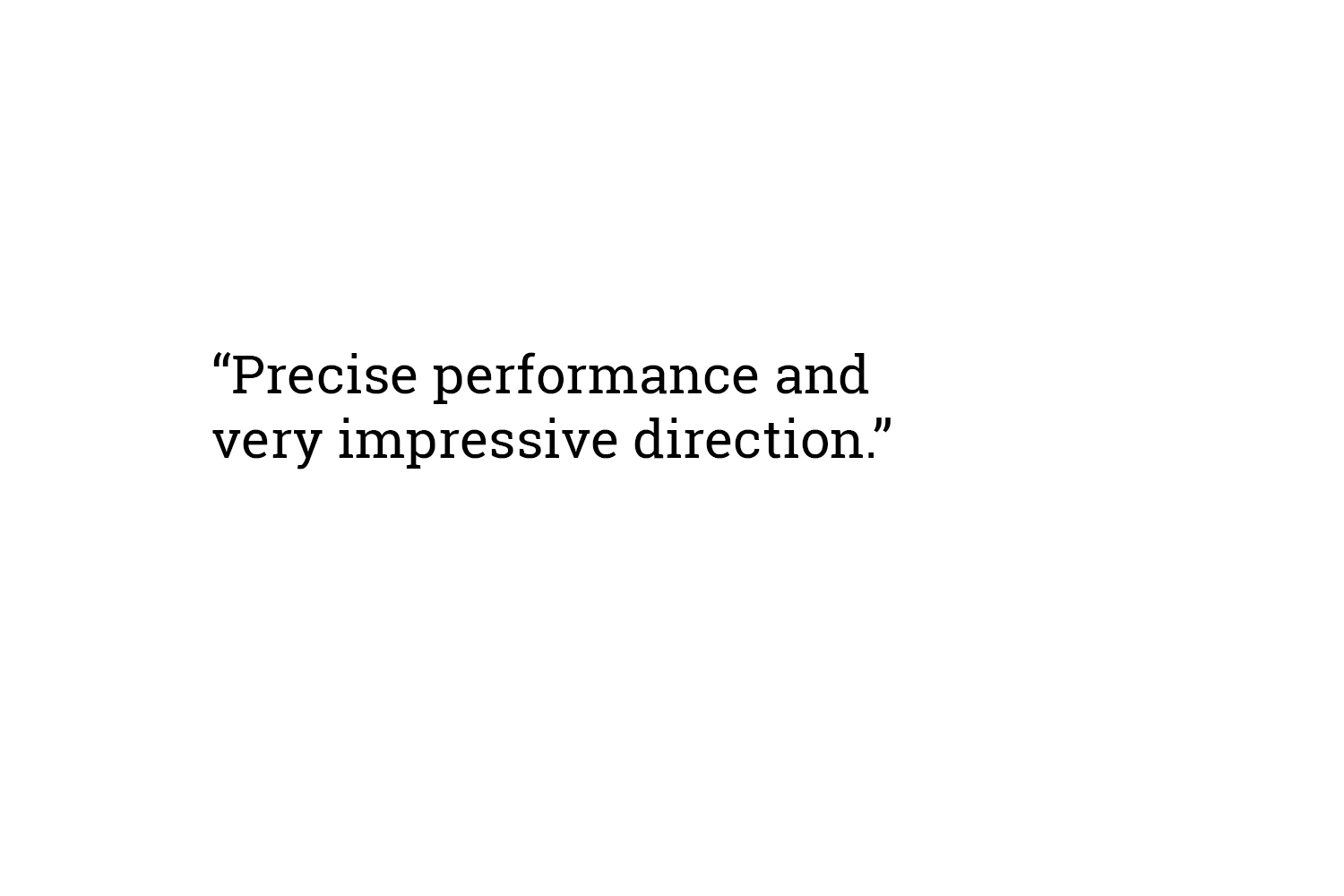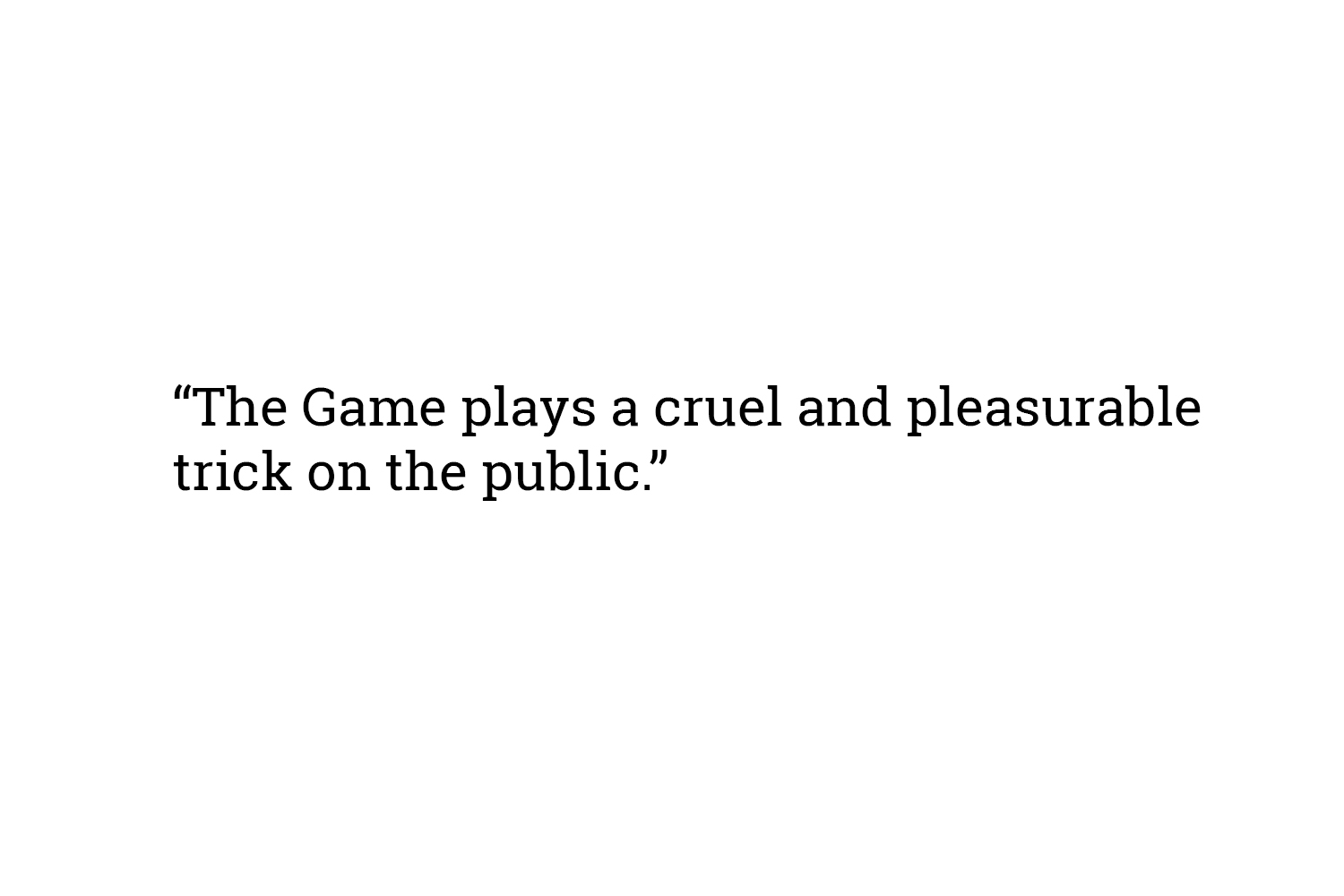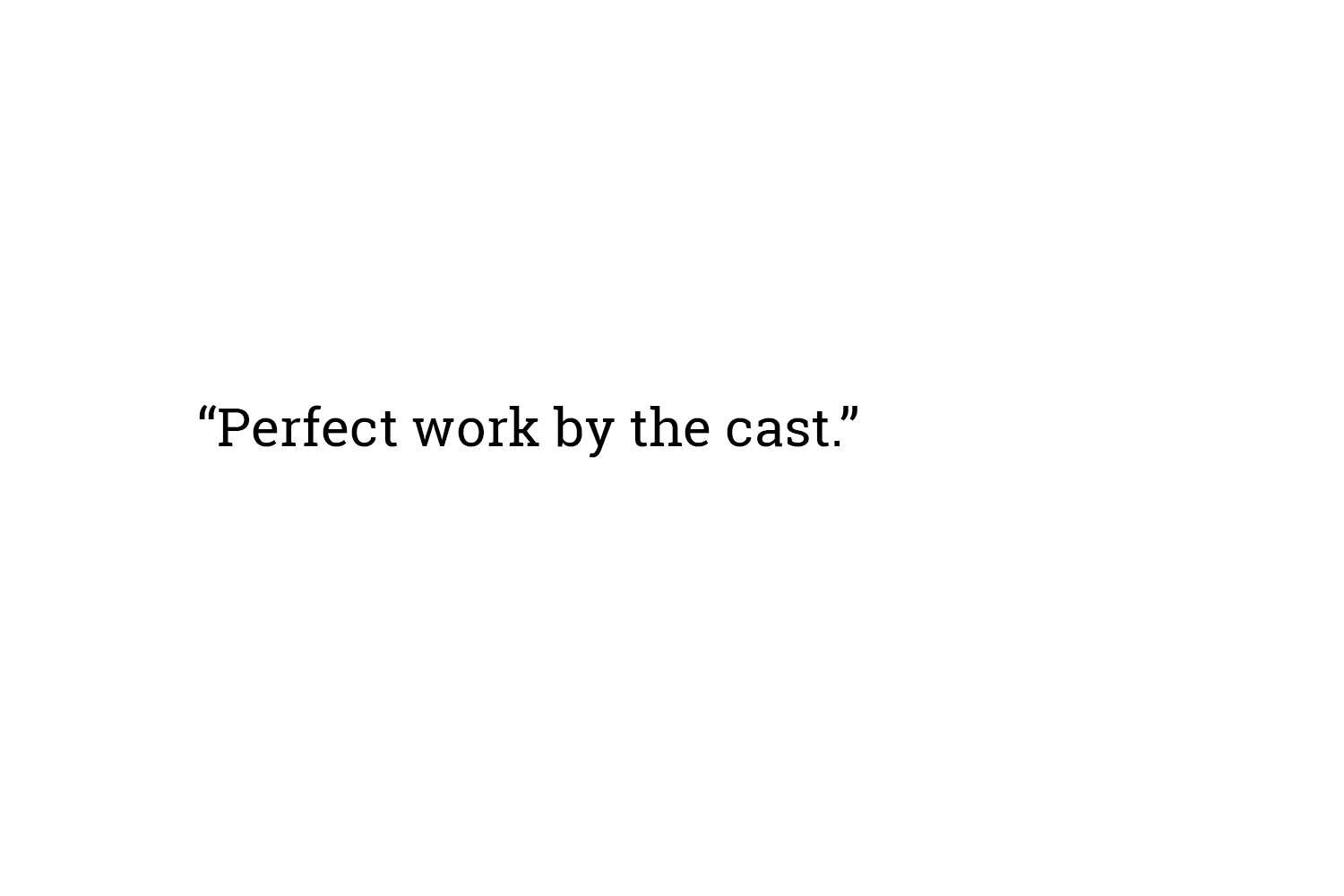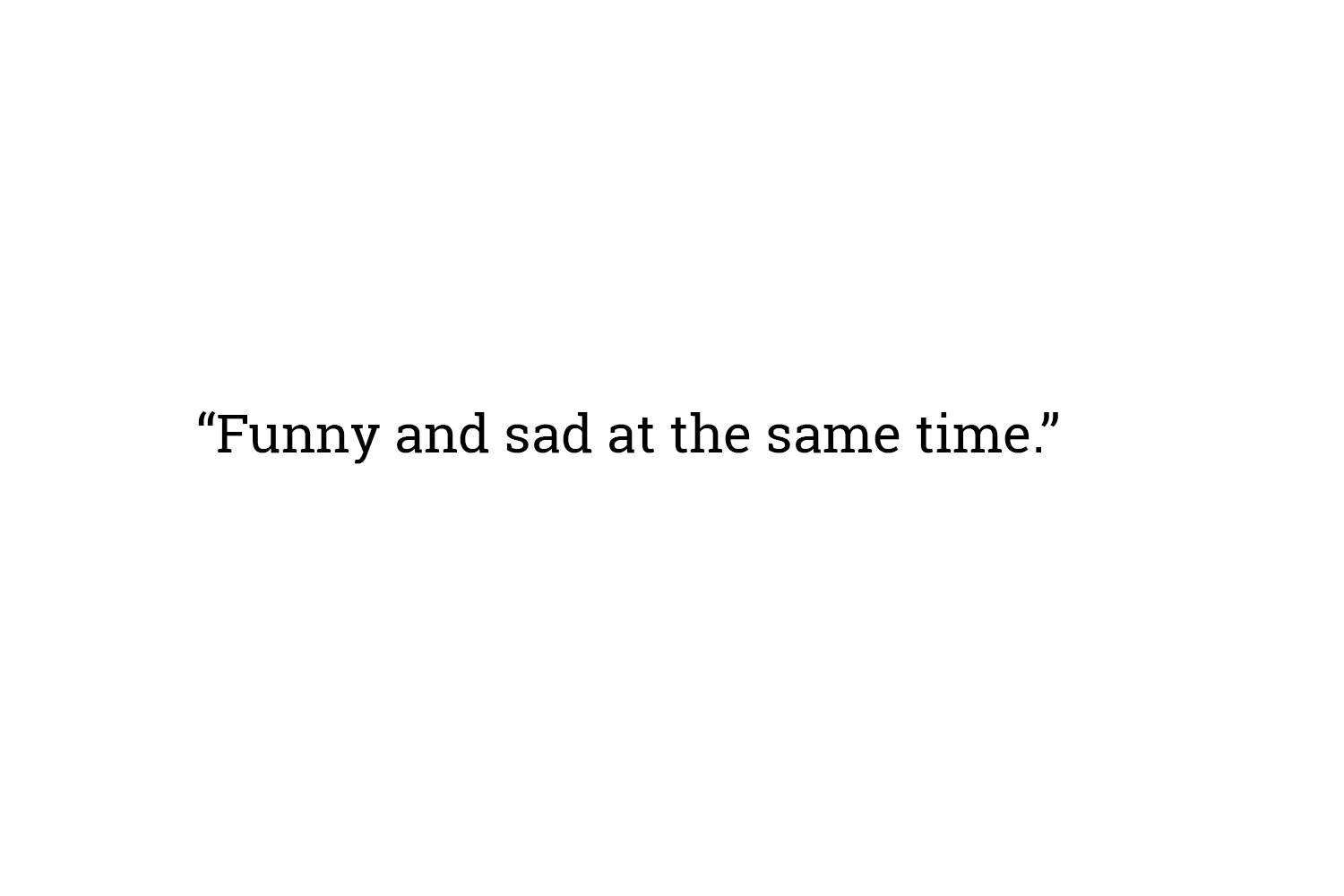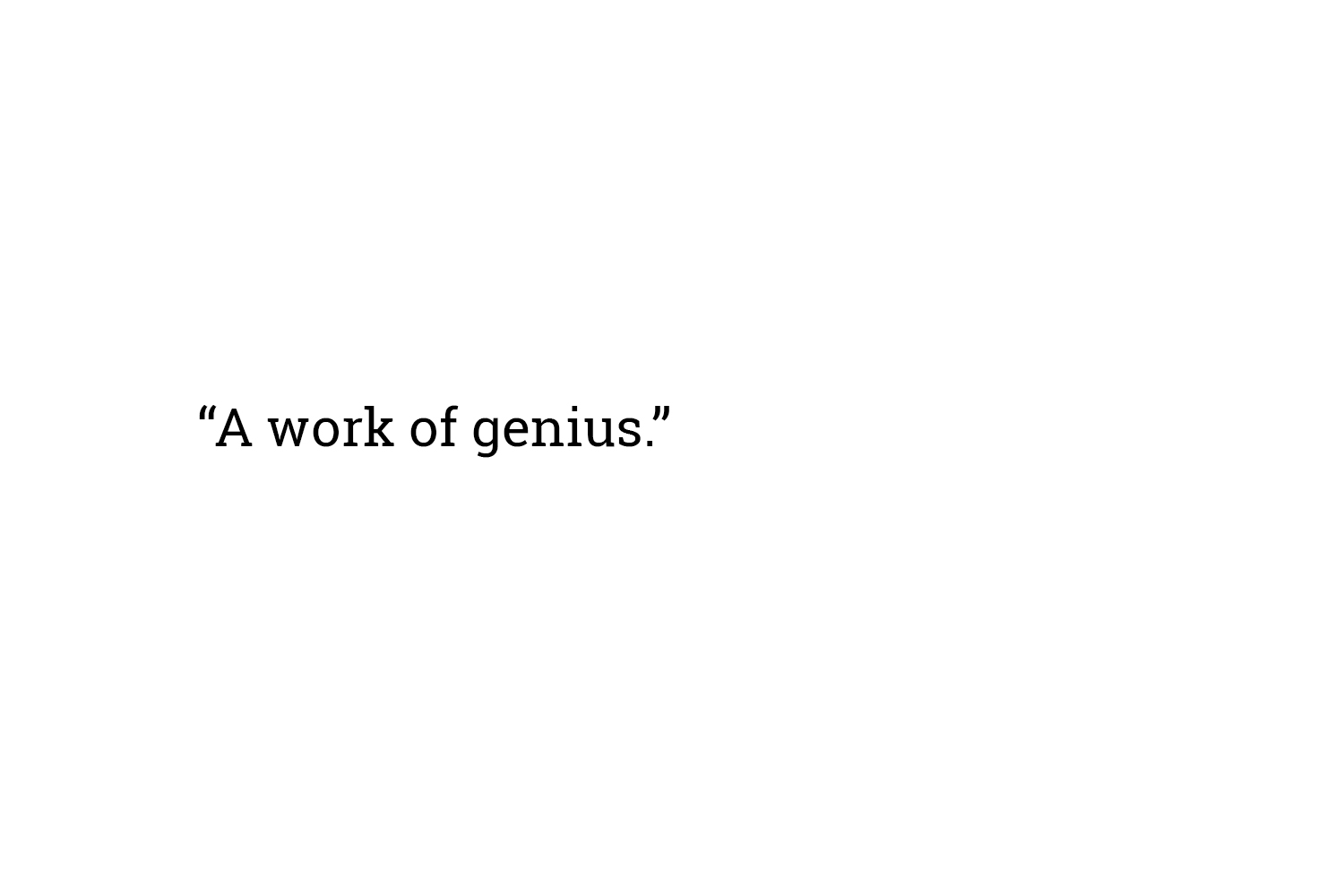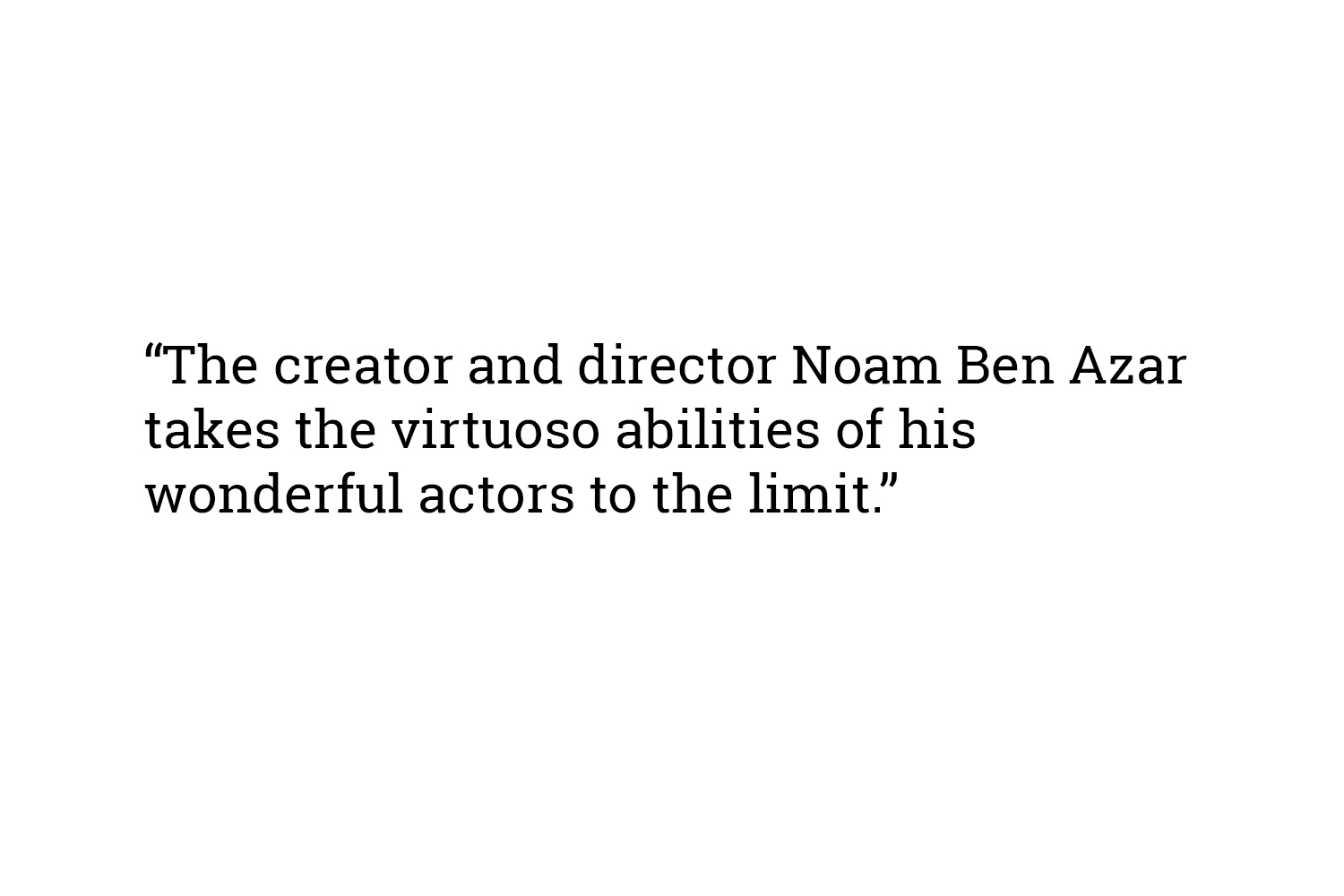Welcome to
The Theatre of
Tears
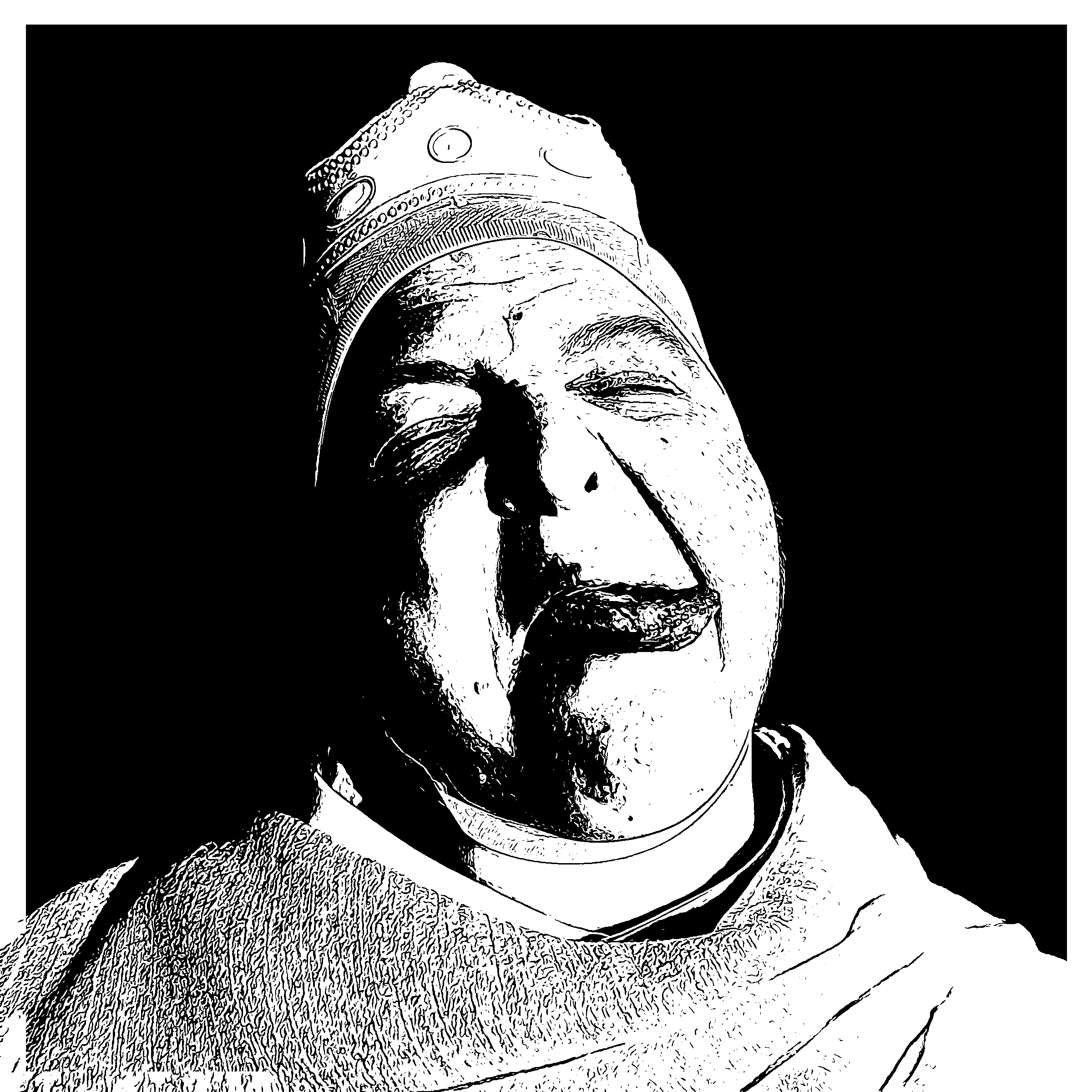
ABOUT THE THEATRE of
TEARS
The Theater of Tears is an empty space without limits, with no end or beginning, no past or future. A place of eternal present, the infinite cycle of life and death.
The Theater of Tears investigates the gap between the human mechanism that defeats itself again and again, and the desire for meaning, hope and redemption. The gap between man and infinite space, between man and his fate.
Within these gaps is the birthplace of the absurd, madness, blindness, and loneliness. Within this huge emptiness man seeks his God.
The actor in the Theater of Tears is an acrobat, a skillful conjuror who mocks his audience; he is amazing and hypnotic, like the Pied Piper of legend he leads his audience on a voyage to the unknown and the misunderstood, to the hidden realms of consciousness, to the springs of pure emotion, along ways that bypass knowledge, with a story that is clouded, he leads his audience “to the gate of tears. ”The Theater of Tears investigates the actor as someone who governs his audience with the force of belief, with the talent to create and give validity to a denied and absurd reality.
The Game is the first project of the Theater of Tears.
The Artistic Concept
The relevance of theater to the period in which it operates has become a general, vague concept that serves as an entry ticket to the prestigious club of “the new creators,” who compete in the endless cycle of the futile race towards originality and the last word. The need to fit theater into the molds of relevance and constant innovation derives from the crisis of identity experienced by the theater in a chaotic and dangerous world. Art is unable(and does not need) to compete at the constantly accelerating rate of a developing world.
The politicization of theater flattens its deep character and the need to define the role of art damages its divine nature. Art is testimony to the act of love between the conscious and the subconscious. Art is a spontaneous response to the world, and its outcome is its message, not a pre-determined agenda.
The need for theater to sanctify “relevance” is evidence of a loss of direction, and it therefore desperately needs to return to its sources, to the actor and the person behind the mask. The naked person, free of devices, a pure and refined soul beyond time. The gap between the origin and divine nature of man, and his erroneous, lost ways – this is my subject as a creator.
Practice and the Work of the Actors
The Tears Theater actors acquire a special working technique through ongoing physical practice, whose purpose is to create a physical and impulsive nerve center of movement, which builds content from within itself, from within the movement. The content does not require a predetermined definition, image or fact. It is formed without thinking, by listening intently to the body and the movement, and by allowing the emerging emotion to come forth and fill the actor’s being. Emotion and movement gradually combine into a dramatic situation that becomes clearer and stronger, until it creates tension and conflict between the nerve center, the complete and authentic source, and the world, life itself and the uncontrollable urge to conquer, rule and win. Within this tension there develops a “character” whose origin lies in the physical nerve center, which concentrates within it the DNA, its own unique color, the desire and the life urge. The actor’s task throughout the exercise is, on the one hand, to submit to the situation and the growing internal storm, and on the other hand to never let go of the source, of the nerve center. That is the only way to preserve the huge conflict that builds the drama.
When working with a text (mainly a classical text) the actor pours the text into the character that has been born from within itself, releases himself from previous conditioning for dealing with the text, renounces the commitment to a logical sentence structure and its dramatic contexts, and agrees to give in and let the words create a storm in his soul. The actor is ready to be the “victim” of the character’s thoughts.
With The Game, we developed a special technique of speaking without language (gibberish), a free language that is not confined within a logical sentence structure. It has no rules of syntax, and therefore it enables the actor to take his intentions to the extreme, beyond what is “accepted,” to devote himself to the internal intensity of the dramatic situation in all its power and yield to the grotesque color of the characters in the project.
For the next project, the intention is to use the gibberish technique we have developed as the main component for working on a written text.
Founder & Director
Noam Ben-Azar
Director and creator, graduate of Beit Zvi College of Performing Arts, class of 1989. Original member of director Rina Yerushalmi’s Israel Prize-winning theater group, the Itim Ensemble. Yerushalmi’s ensemble has performed with great success at over twenty important theater festivals worldwide. In the ensemble, Noam played several prominent roles, including productions of Hamlet, Woyzeck, Romeo and Juliet, Three Sisters, Vayomar Veyelech, Veyishtechu Veyareh, End of the Game and others. In 2016 he won the Golden Hedgehog Prize for Actor of the Year for the role of the suitor in Peer Gynt, directed by Yerushalmi, and was a candidate for the Actor’s Prize of 2013 for the role of the doctor in the ensemble’s performance of The King is About to Die. Noam has directed many fringe plays, including Avshalom, Spoonful of Ocean, The Thousand and Sixth Song, Macbeth, The Game, and others. He teaches acting at the School of Performing Arts at the Kibbutz Seminar College’s Faculty of Arts, and teaches acting to students of singing in the Multi-Disciplinary Department of the Academy of Music and Dance in Jerusalem. Over the years, Noam has developed a unique method of working with actors and pupils, whose main element is the use of text with full involvement of the body and creating a close link between speech, movement and thought.
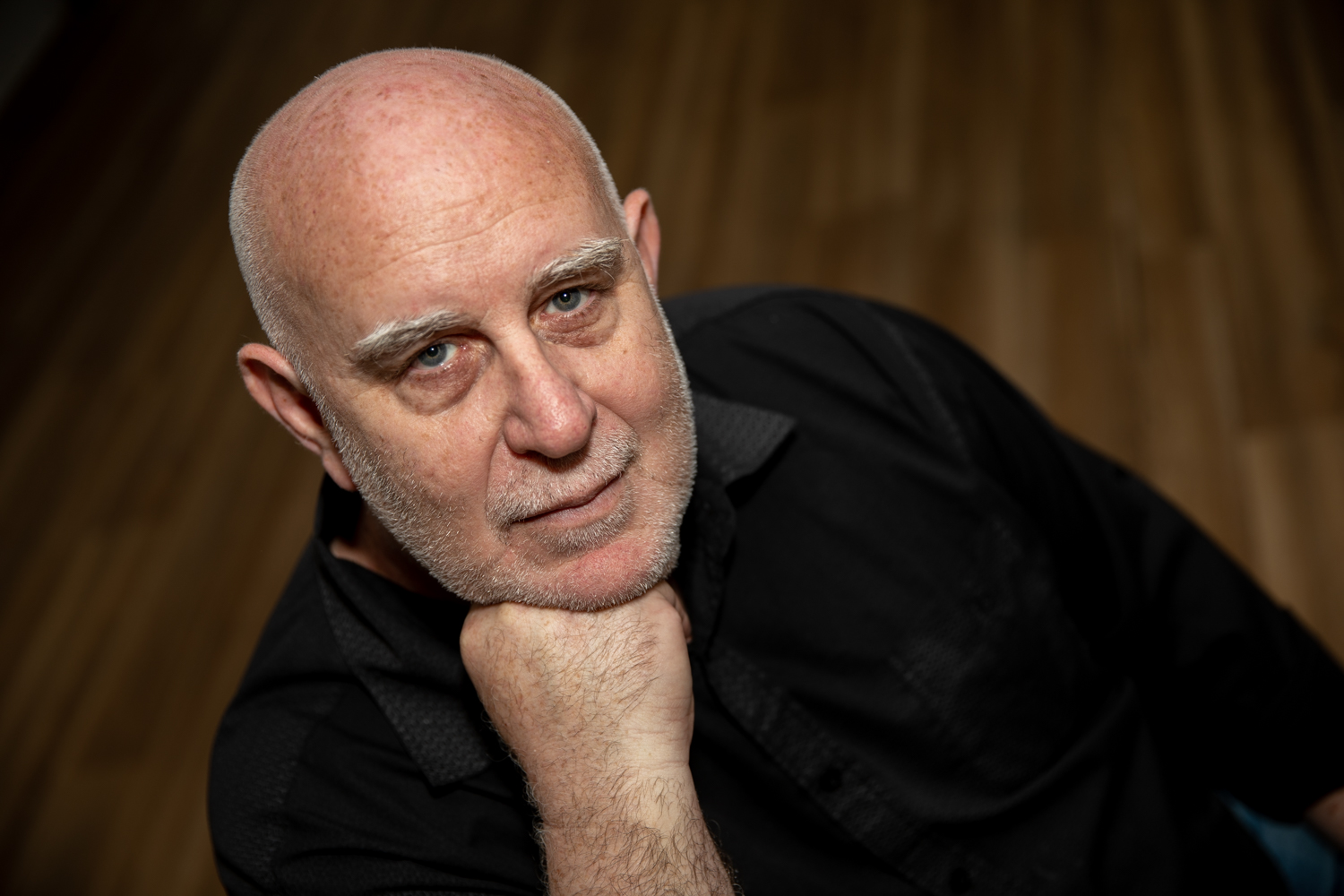
The GAME
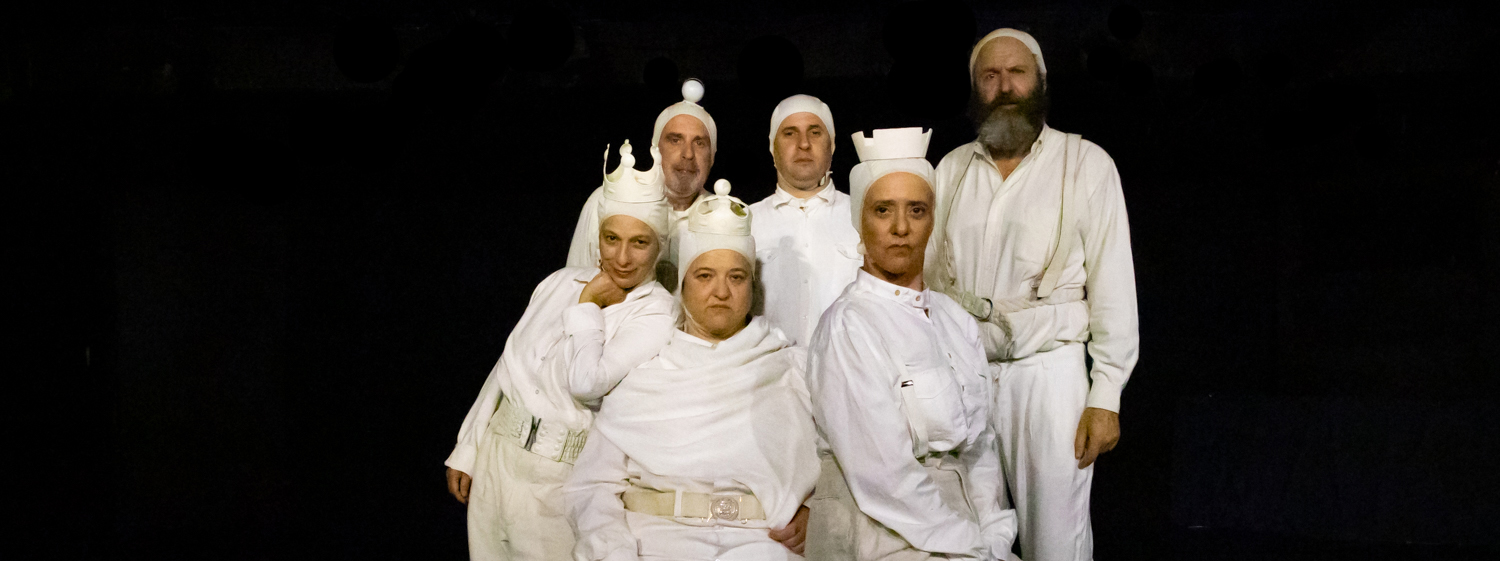
About the Game
Six characters, six chess pieces. King, queen, bishop, rook, knight and pawn. The plot deals with the final tense and fascinating stages of a game against an unseen opponent. It is a world of lost characters, without past or future. Their whole purpose is to survive the battle. Their existence has no other meaning.
The circle is closing on the kingdom, and although there is a fleeting illusion of that losing can be aboided, the cruel truth hits hard. The pieces fall one by one and the king is captured. Man’s nothingness against fate and death, and the illusion that a war can be won - these are the striking features of the work. Ego conflicts and mutual accusations only bring us closer to the bitter end. The personification of the chess pieces creates a grotesque effect and the self-importance of the characters shows the idea of war in a ridiculous light.
The language is free form, using a special technique developed during rehearsals, which introduces passages in English spoken by the bishop whose job is to analyze the state of play and bring information to the king. The special language allows the players to exaggerate their intentions and actions without being dependent on the structural logic of the language. In this way they are free to go far with the emotional power and internal intensity of their words.
The intermittent ticking of the chess clock stresses the element of pitiless time which advances cruelly. The bishop suggests resignation as a realistic option, yielding to fate, giving up and accepting the loss, and thus gaining life. The bishop, who bears the image of the messenger as victim, is also the unwilling prophet who tells of the divine revelation he has experienced, the fascinating biblical prophecy of Ezekiel who describes a mysterious chariot, a divine revelation that announces the abandonment of the Divine Spirit and the approaching destruction of the Temple. The special acting technique stresses the tension between the mechanical and the human, and between freedom of choice and its absence.
Actors
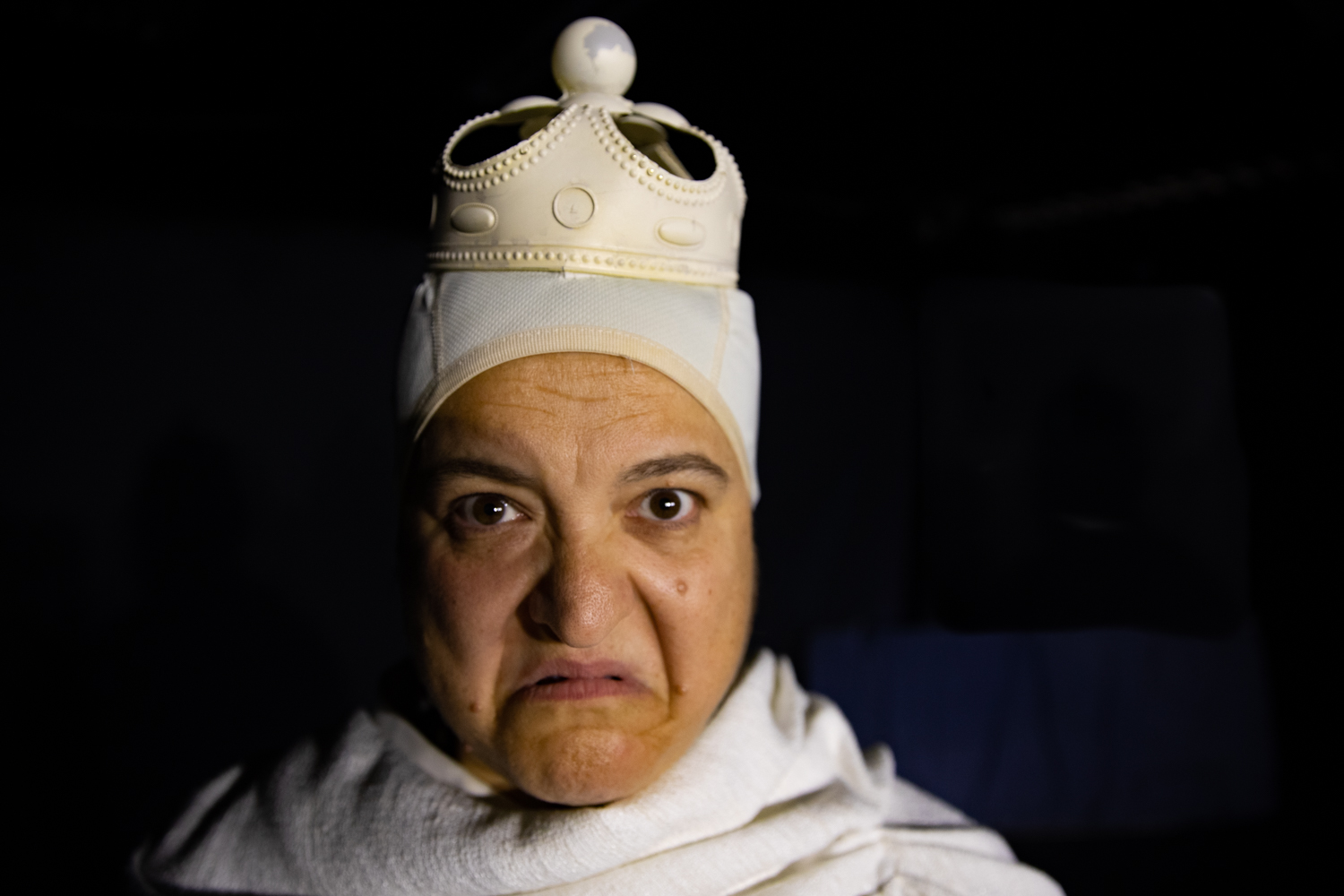
Sigalit Fuchs
Actor and creator, graduate of the School of Performing Arts of the Faculty of Arts in the Kibbutz Seminar College, class of 1993, and the H.B. Studio NY. For her leading role in the movie Joy, directed by Julie Shles, she won the Ophir Prize, the prestigious Wolgin Prize at the International Film Festival in Jerusalem, and the Syracuse International Cinema Festival Prize in New York State.
She creates, leads and participates in the women’s improvisation group “Mealterot Baam,” which appears all over Israel. In 2001 she won the Best Actress Prize at the Acre Festival for her role in Sometimes Elephants Pass By. She created, directed and acted in Fairy Tale at the Acre Alternative Theater Festival in 2013, and won the Best Actress Prize for her role in the play. She has appeared in Requiem by the well-known playwright and director Hanoch Levin at the Cameri Theater, a play that has been performed all over the world. Sigalit is currently appearing in The Comedians directed by Ilan Ronen at the Haifa Theater. She has appeared in most of Israel’s repertory theaters as well as creating and acting in numerous fringe productions. For the cinema she has appeared in: Joy, The Pracht Inn, Nina’s tragedies, Eli and Ben, and others. On television she has appeared in: The Good City, Miller Junction, Losing Alice, On the Spectrum, The Prime Minister’s Children, and more. Sigalit teaches acting at the Academic College of Society and Arts, as well as privately.
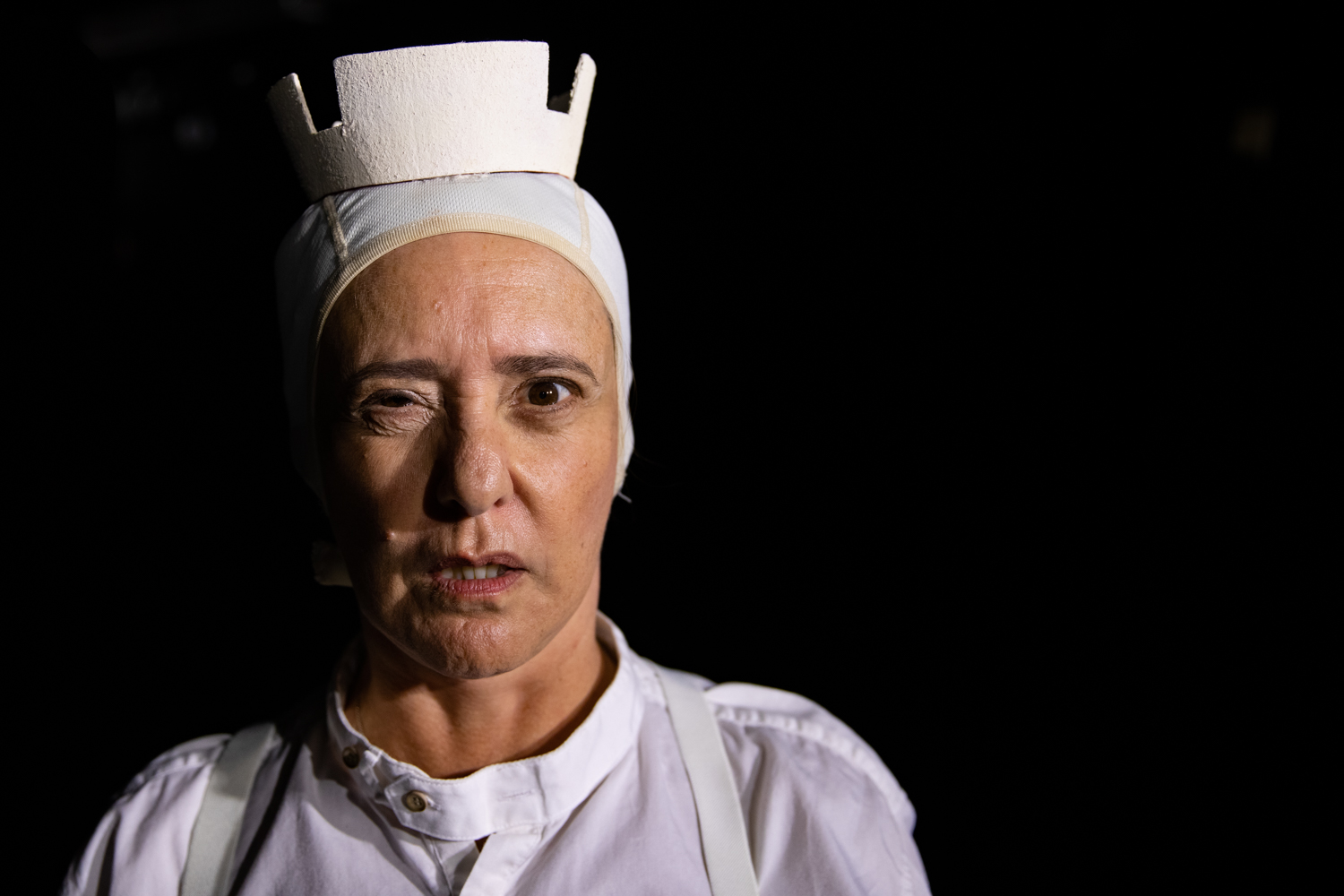
Sandra Schonwald
Actor and creator, graduate of Beit Zvi College of Performing Arts, class of 1987. She was awarded a scholarship from the Israel Foundation for Nurturing Promising Actors. She has appeared in The Weepers, Decapitation and Requiem, all by the well-known director and playwright Hanoch Levin. For her part as the mother in Requiem, Sandra was a nominee for the Israeli Theater Prize. She has appeared in all the major theaters, series and famous films and various theater groups, in All About My Mother, Absurd Person Singular, Cassandra, Love of Death, Devorah Baronand others. Sandra has managed projects for groups of at-risk youth in the framework of Niko Nitai’s Karov Theater in which she directed many plays. She continues to teach and mentor theater groups.
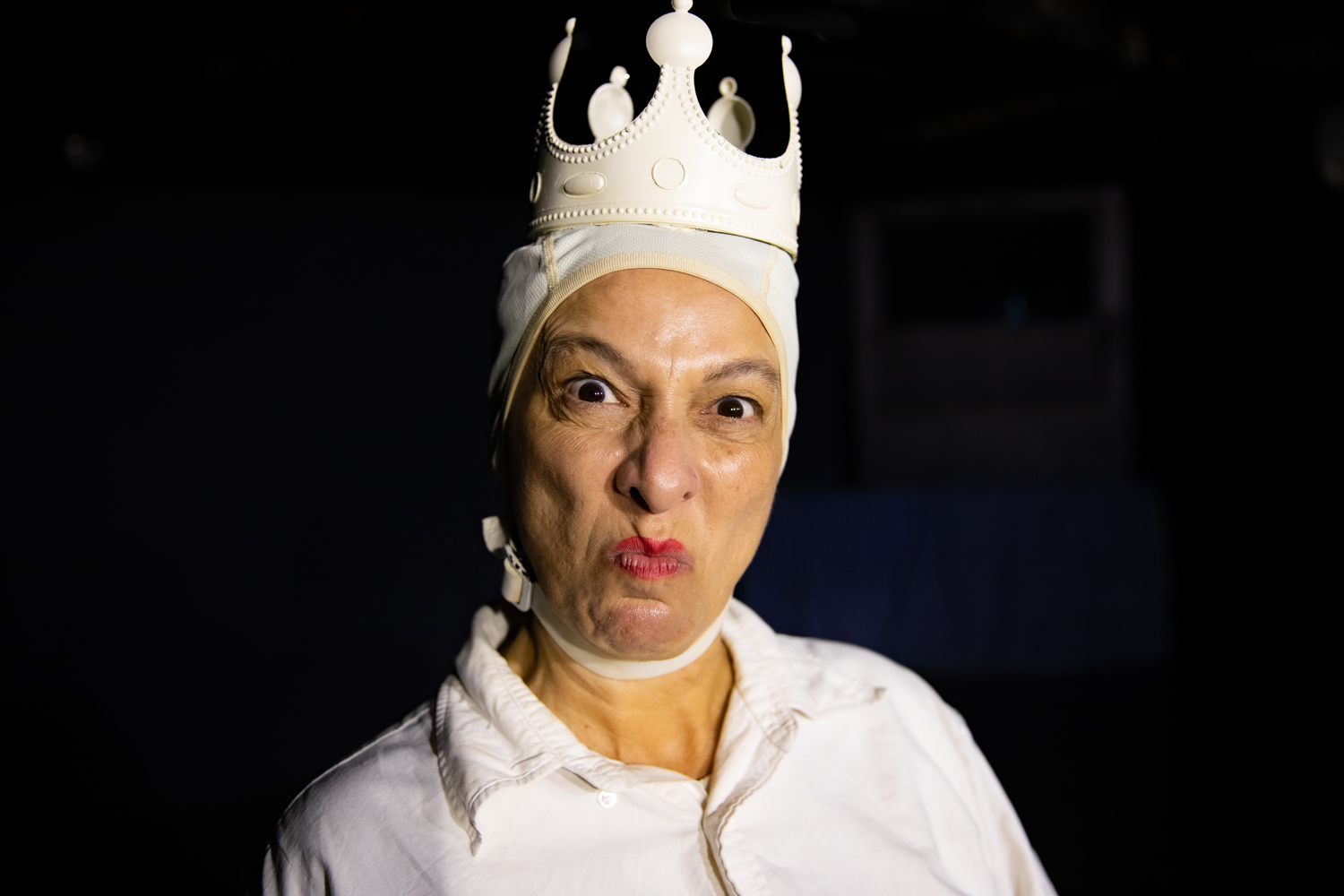
Miri Lavie
Actor and creator, graduate of the Dudi Maayan School for Creative Actor Training at the Acre Theater Center, class of 1990, and Amir Orian’s Open Circle Workshop. She is studying for a master’s degree in the Theater Faculty at Tel Aviv University. She has appeared in plays directed by Dudi Maayan: Arbeit Macht Frei, Second Generation Memories in the Heart of the Old City, Six Ugly Women Talk About Beauty, and Observation 1976, all winners of first prize at the Acre Festival.
She appeared in Above You, directed by Osnat Shenk Yosef, at Acre Theater Center. She created and directed the play Don’t Say Water, which was commended at the 2002 Acre Festival. She created and directed Go Thou and Delicate Hope for the Acre Theater Center. She teaches theater to high school pupils, community theater and special needs students.
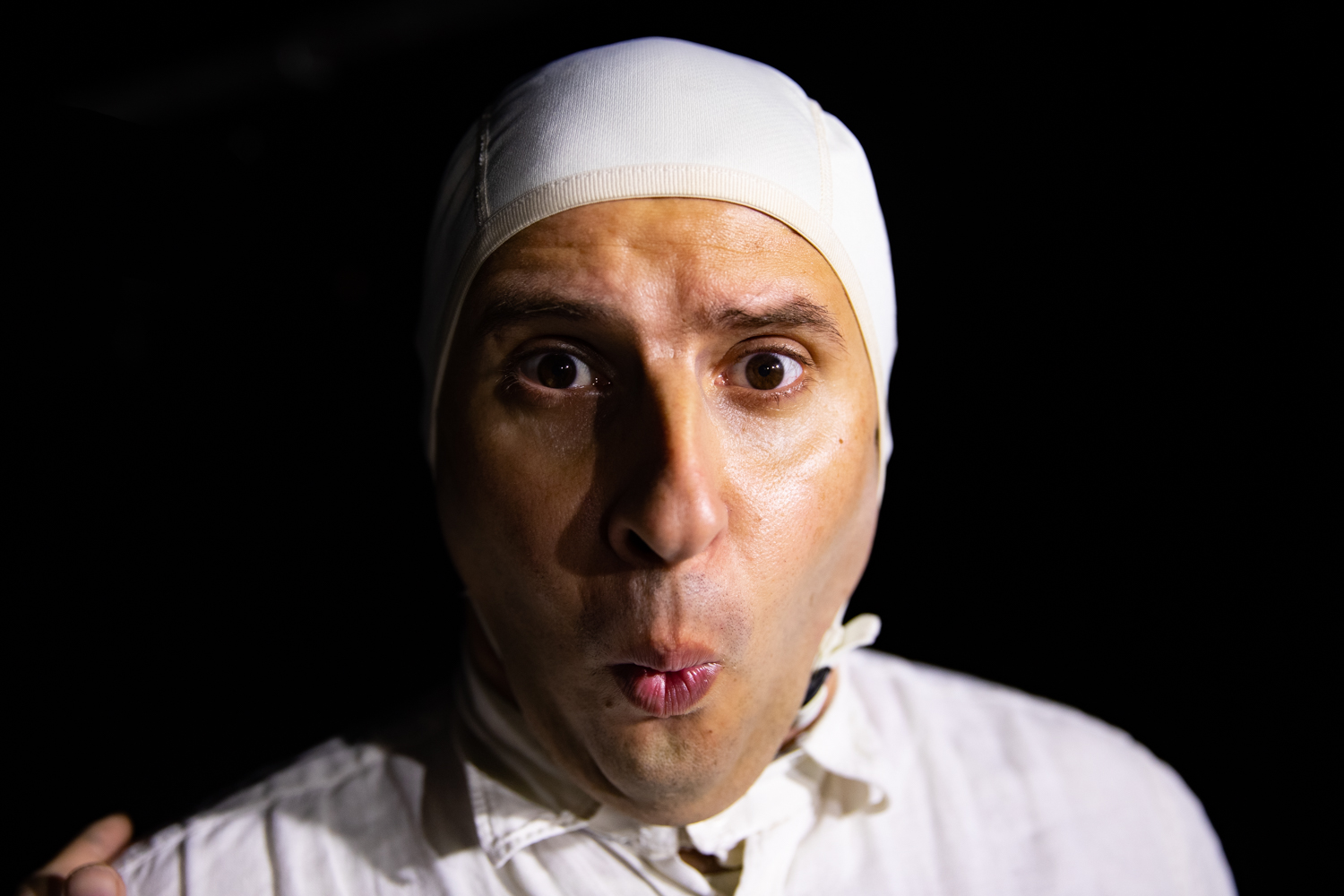
Eyal Raz
Actor and creator, graduate of the School of Performing Arts of the Faculty of Arts in the Kibbutz Seminar College. Acted in Notzar Theater in: Animal Farm Orchestra, Oresteia and Mountain. At Habima Theater he appeared in Rosenblatt Express. For Haifa Theater he appeared in Last Tree in Jerusalem. In the framework of director Rina Yerushalmi’s Itim Ensemble he appeared in Timon of Athens. For Tmuna Theater he appeared in Richard The Third, and in Dalia Shimko’s group Aspamia Ensemble he appeared in The Weiss Estate. Eyal performed in Last Tree in Jerusalem in the Haifa Theater. At the Acre Festival he appeared in Love Box, a work by Moshe Malka. He appeared in the movie With Rules directed by Dobar Kosashvili, and in the television series Ramzor.
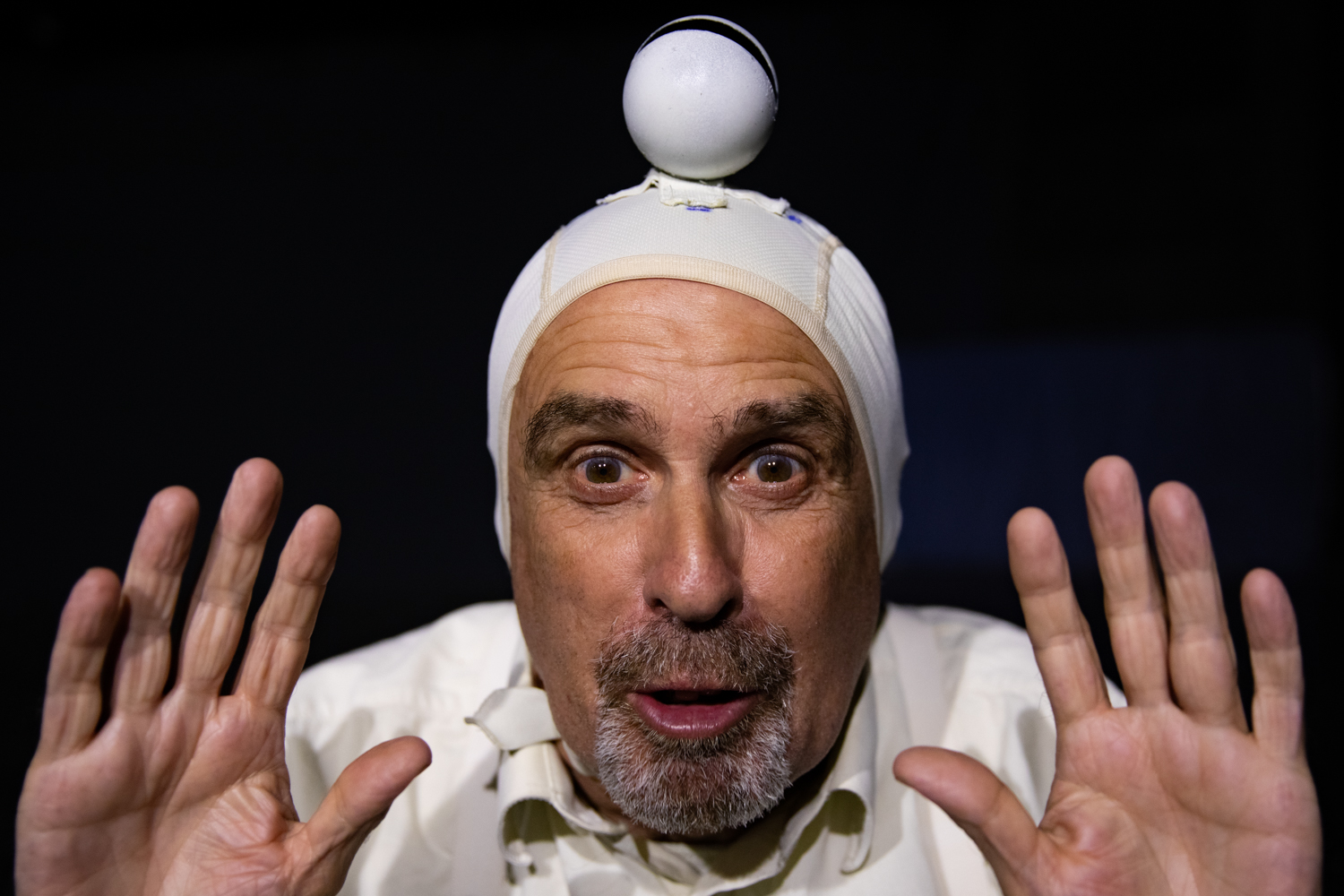
Mark Mason
Actor and creator, graduate of Beit Zvi College of Performing Arts, class of 1989. Graduate of Highbury College of Arts in England. He has performed in the Library Theater as the father in The Father, Michael in The Boys in the Band, and Dr. Treves in Elephant Man. At the Givatayim Theater he has performed in A Question of Faith. He currently acts at the HaTeiva Theater. He has appeared in various plays at The Children & Youth Theater, and in many series in English on Educational Television. He appeared in the movies The Delta Force and Snow White.
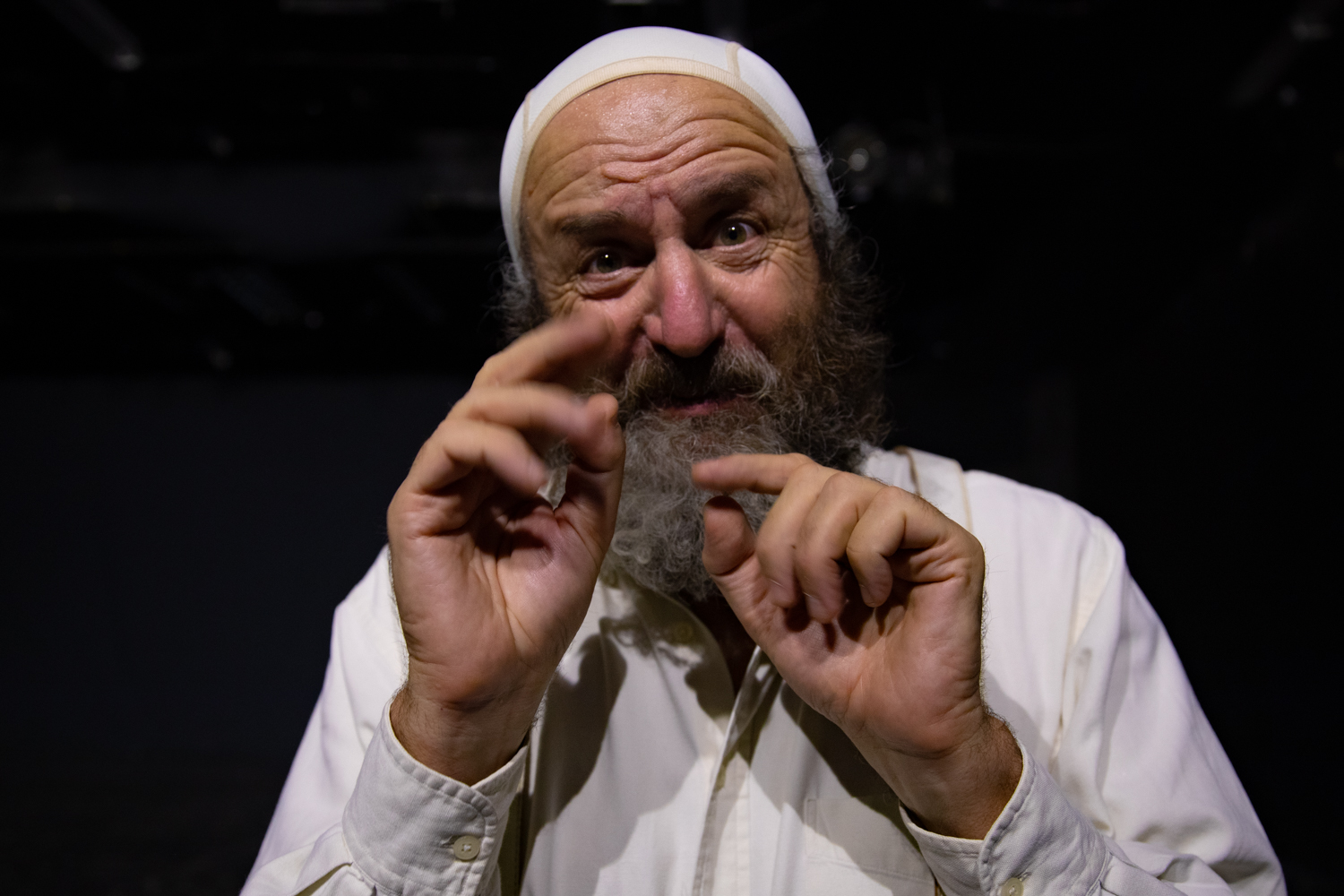
Ilan hazan
Actor and creator, graduate of Beit Zvi College of Performing Arts, class of 1987. Has performed in the Khan Theater, Beit Lessin Theater, Habima, Orna Porat Theater, Micro Theater and others, including the following plays: Accidental Death of an Anarchist, The Storm, The Child Dreams,Shozes & Bjijina), The Loves of Judith, The Anguish of King Solomon, and others. He has written plays for the Khan, the Theatronetto Festival, the Short Theater Festival, and others. He has appeared in the following television series: Ramzor, Miller Junction, Pillars of Smoke, The Attache and more. He has appeared in the movies Anthem, Paper Wedding, And For the Glory of the State of Israel, Jonah and others.
creators
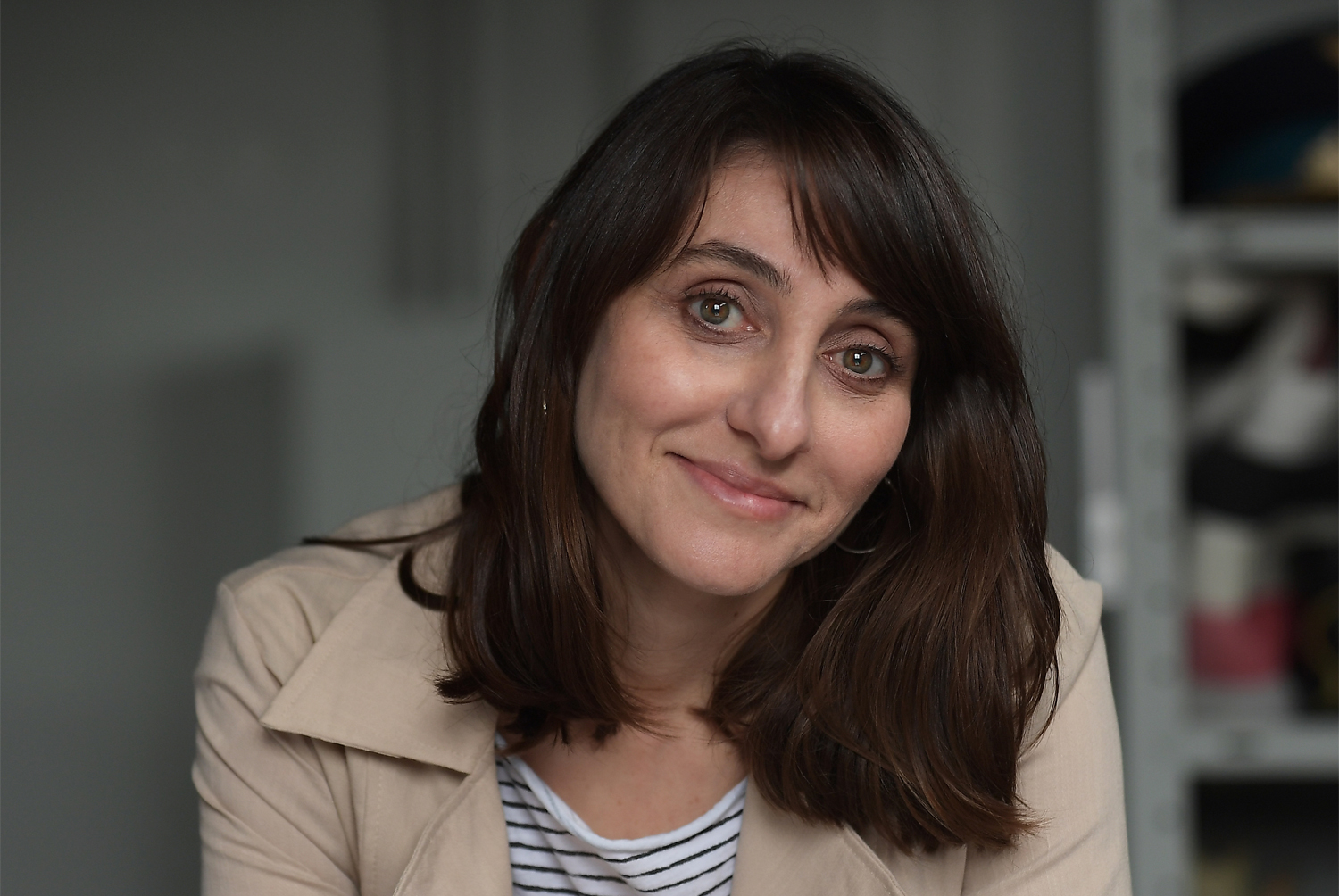
Costumes
Natasha Tuchman Polyak
Set and costume designer for theatre. Graduated with excellence from the MFA Stage Design Program at the Department of Theatre Arts, Faculty of the Arts, Tel-Aviv University (2005) and received the department’s Scholarship for Notable Achievements. Works include costume design for THE ADVANTURES OF THE BLUE DONKEY (Haifa Theatre, 2015); TEN MINUTS FROM HOME (Habima National Theatre, 2015); JEHU (Habima National Theatre, 2015); GOD WAITS AT THE STATION (Habima National Theatre, 2014); THE LOVER (Habima National Theatre, 2014); THE OATH (Habima National Theatre, 2014); A MAN DOES NOT DIE IN VAIN (Habima National Theatre, 2013); stage design for TEHILAH (Khan Theatre, 2012) and more.
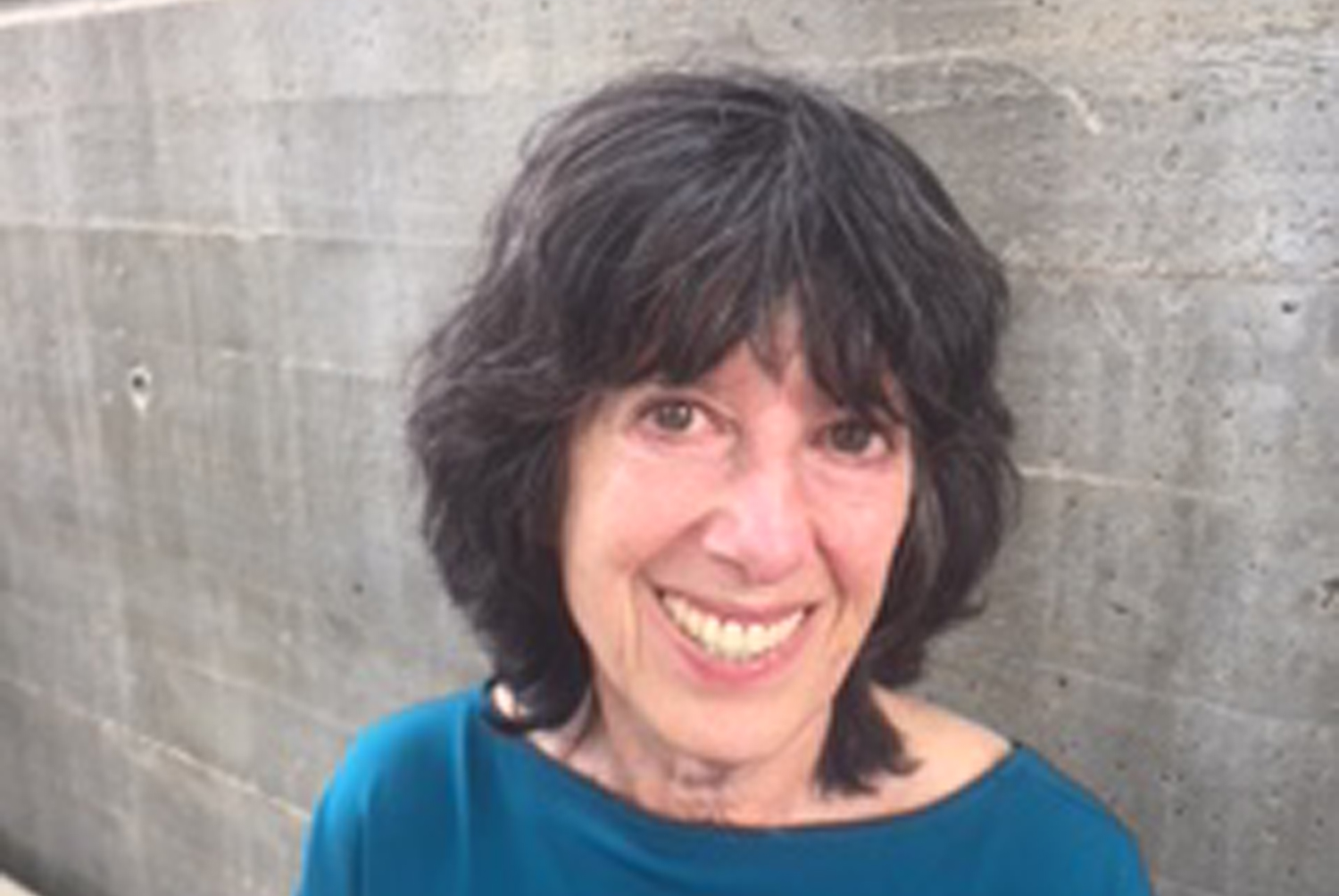
lights
Judy Kupferman
Israel lighting designer. Has designed lighting for over 800 works including theater, dance, opera, exhibitions and more. Resident designer for Bat Dor Dance Company for two decades. Designed lighting for many outdoor spectaculars including centenary celebrations for major Israeli cities, Israel’s anniversary celebration in Ramat Gan Stadium, opening ceremonies for the Hapoel and Macabbia games. Judy taught lighting design and technology for many years at the Tel Aviv University theater department and leading stage and lighting designers today were her students. She has also won numerous prizes for dance and theater lighting, including five prizes at the Akko Festival, prize at the Shades of Dance festival, annual prize for best lighting for a children’s play, and “Golden Hedgehog” for best lighting in experimental theater. Recent works include “Carmen” at the Haifa Symphony Orchestra and “Amorphia” for the Jerusalem Dance Theater.
Together with American designer Jeff Salzberg, Judy established a website for lighting students, www.stagelightingprimer.com, which is used as a textbook and a tool in schools and by designers world wide.
A glance at the Play
